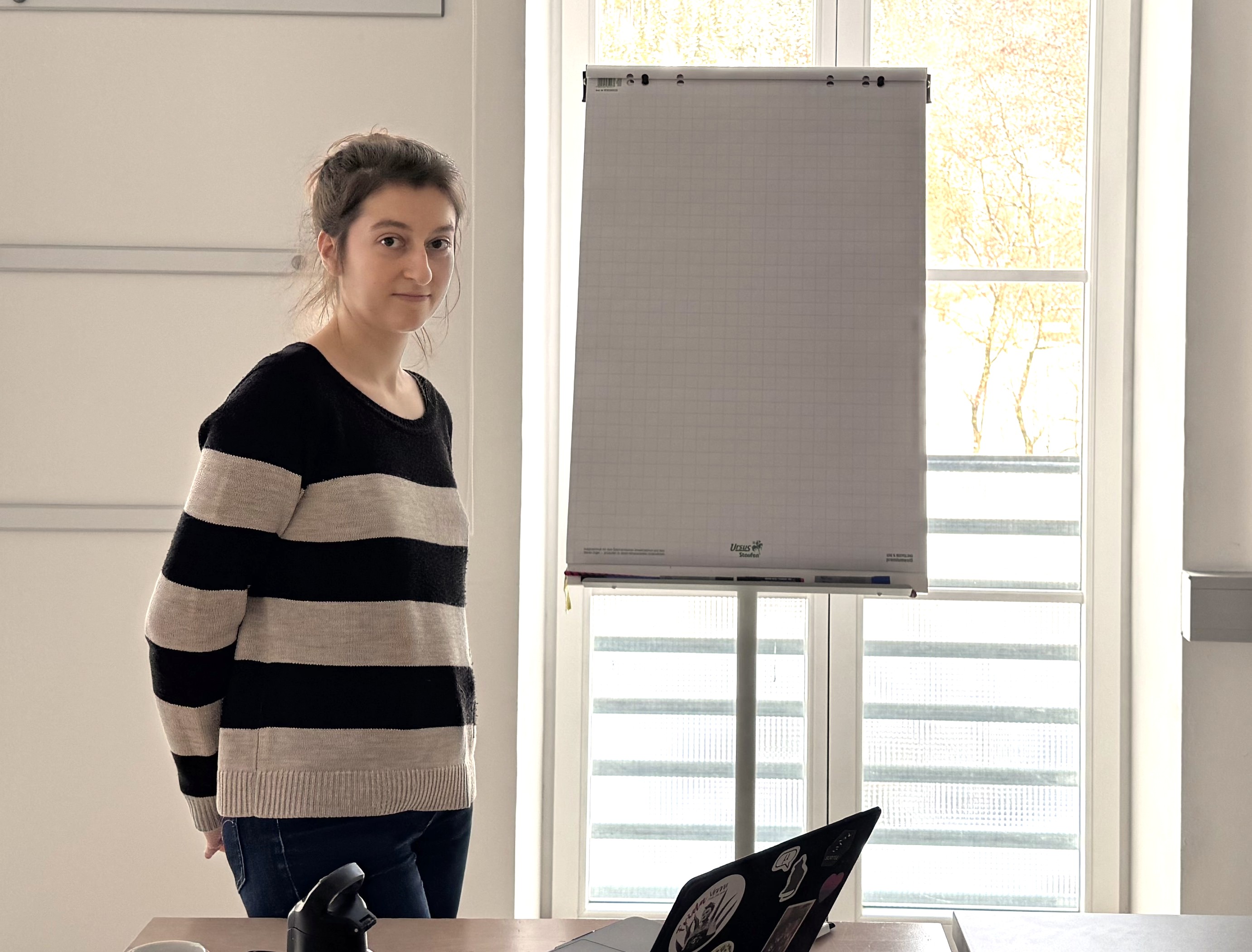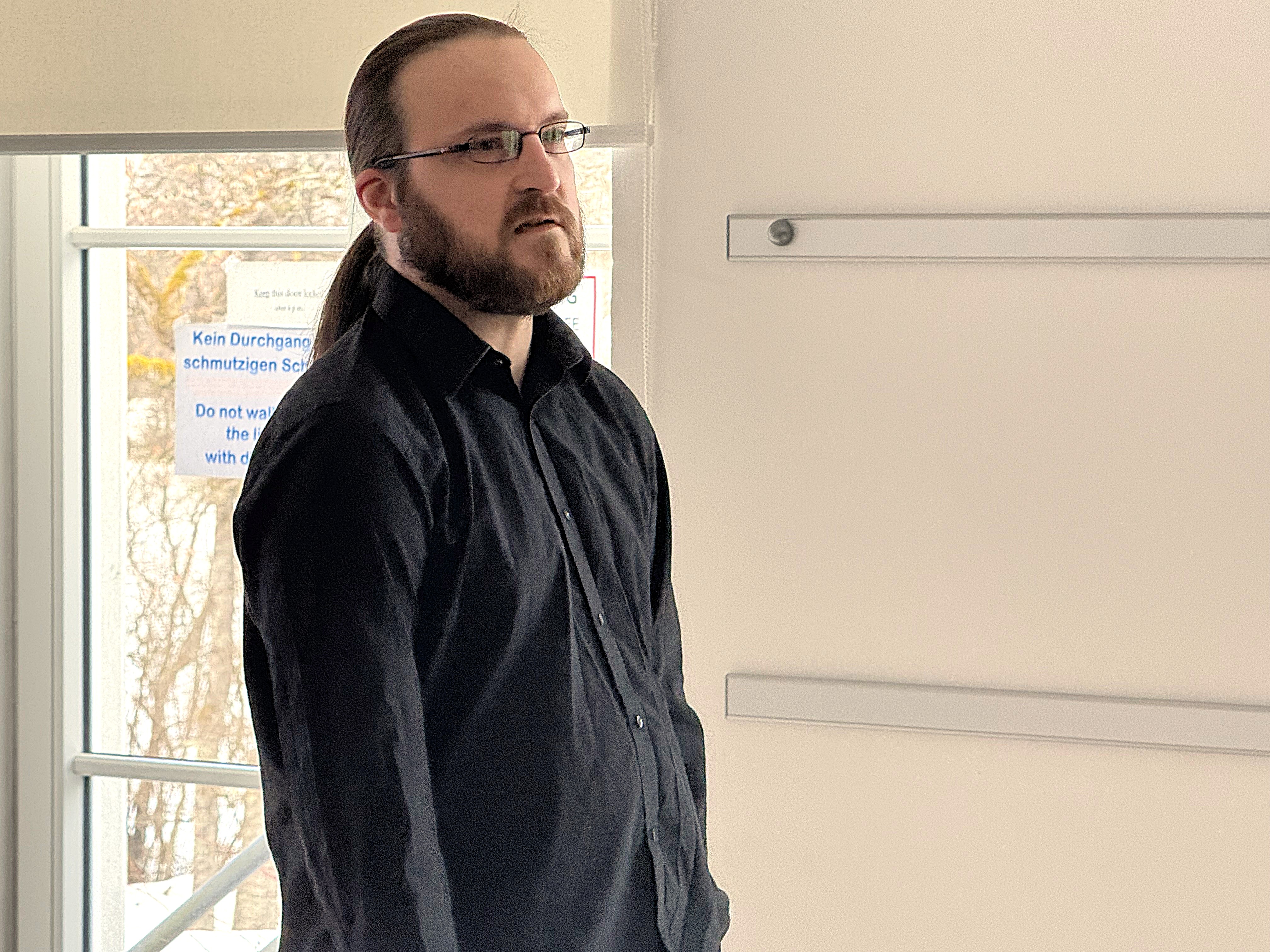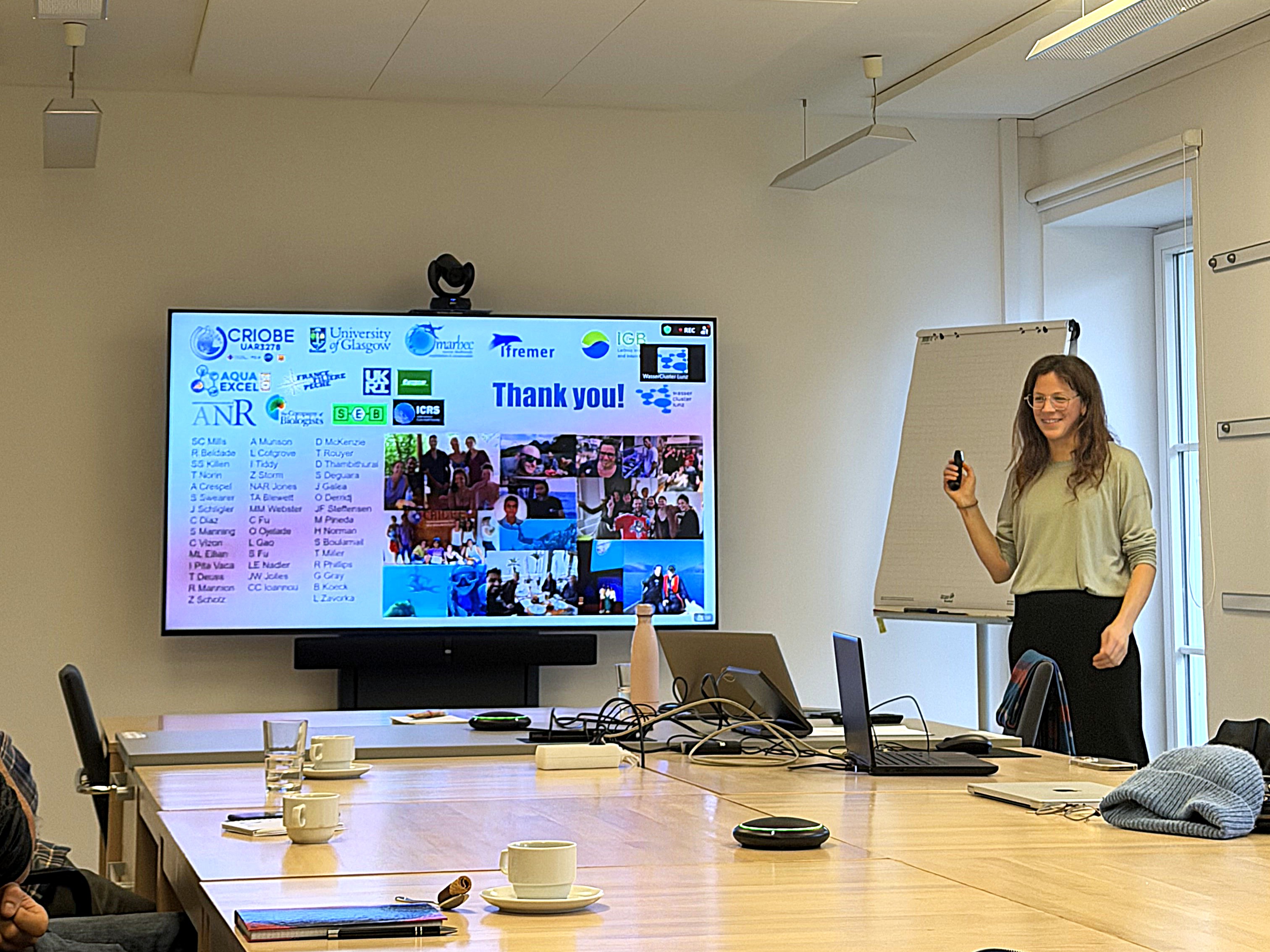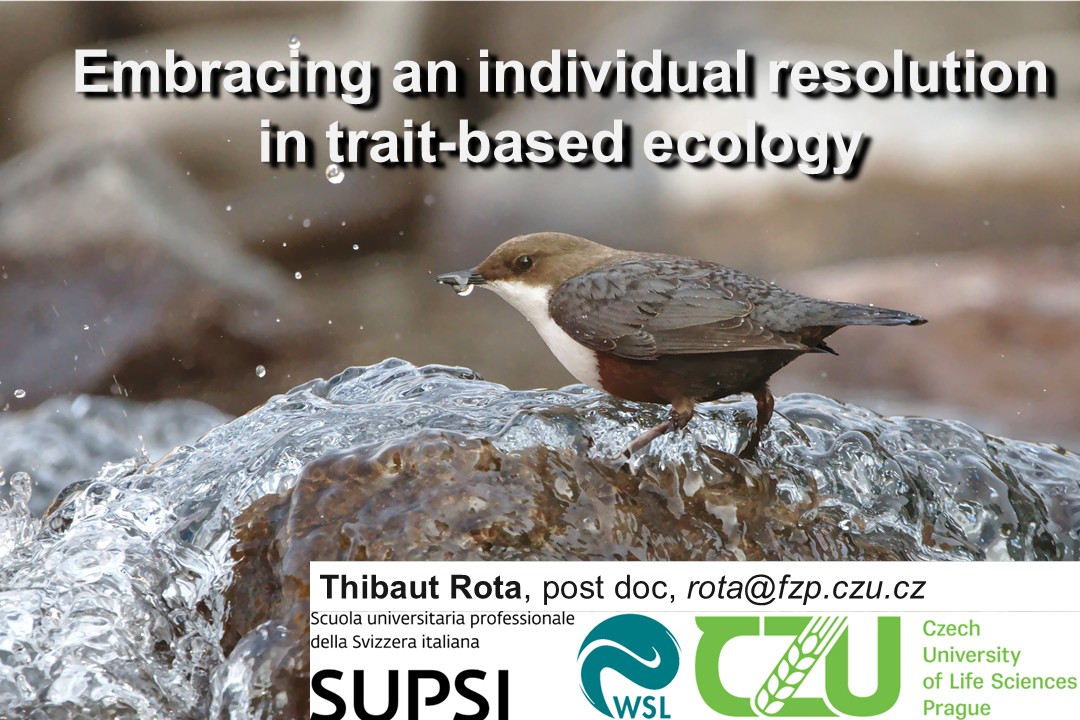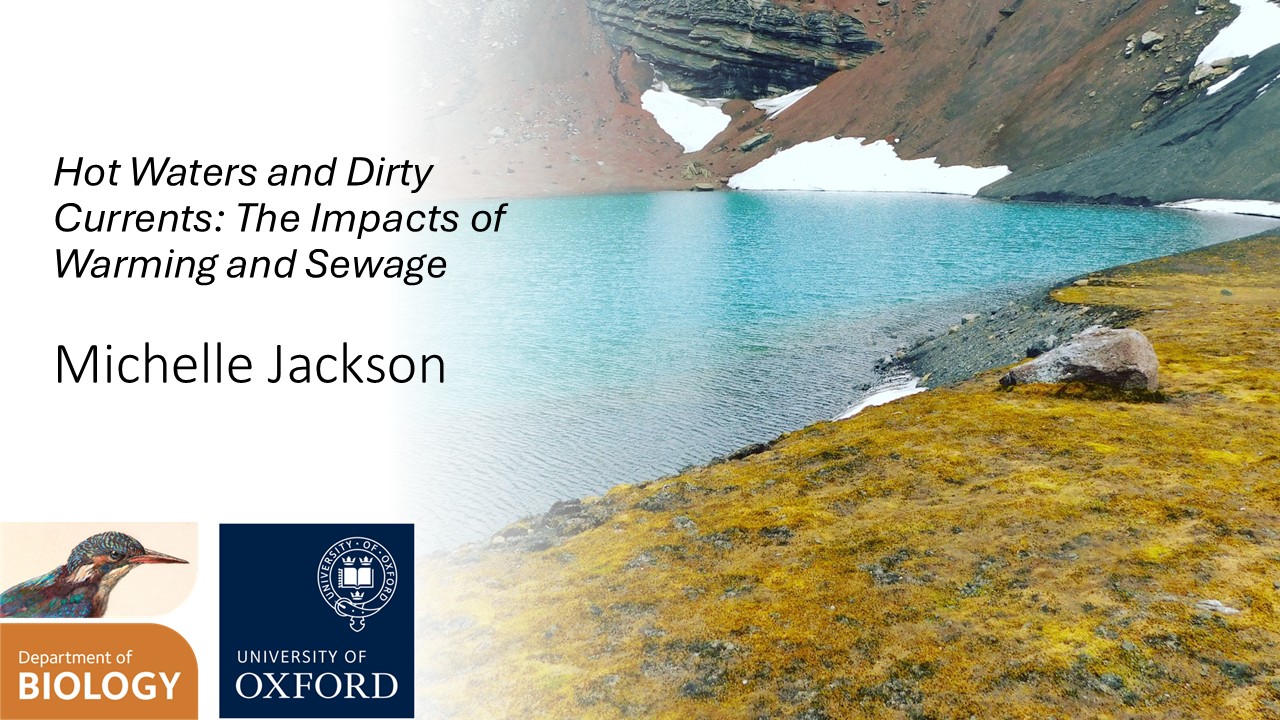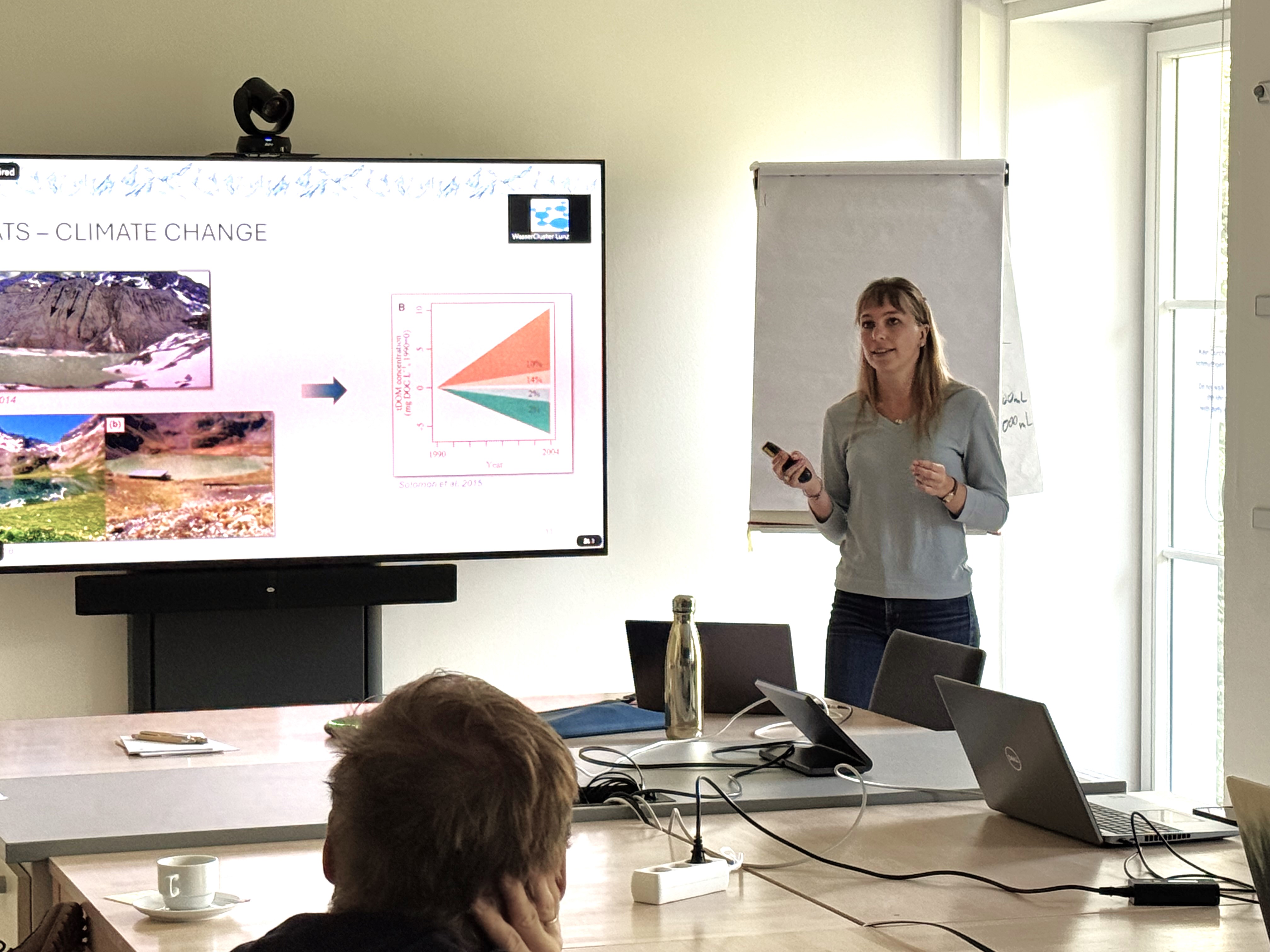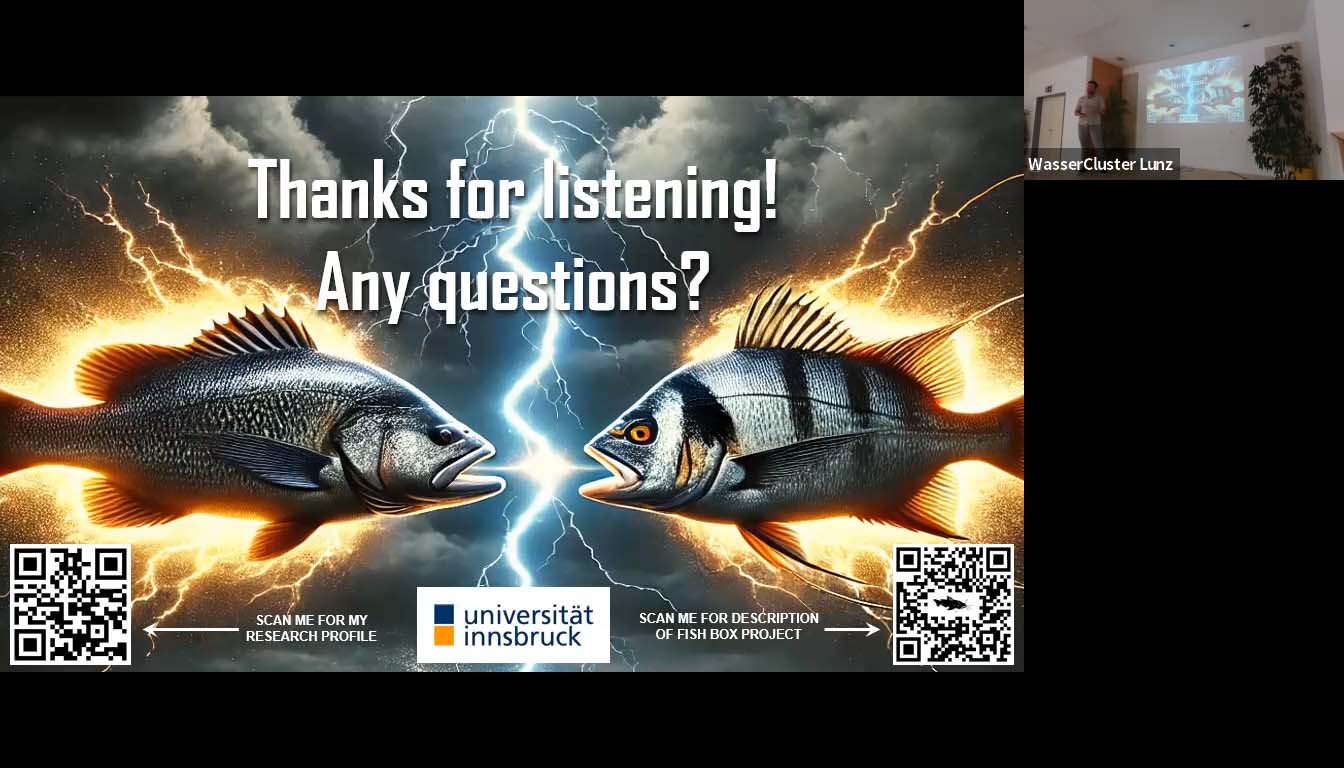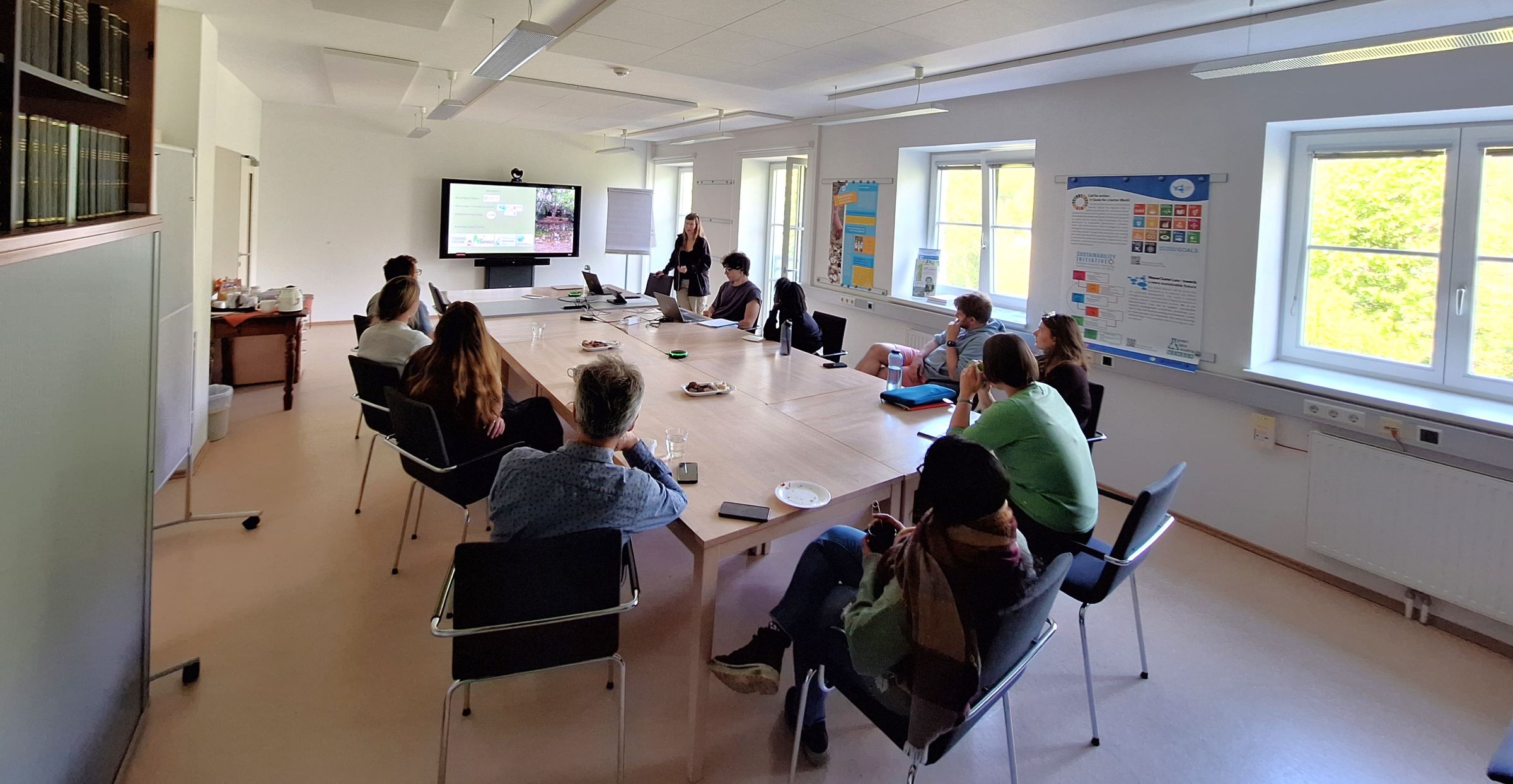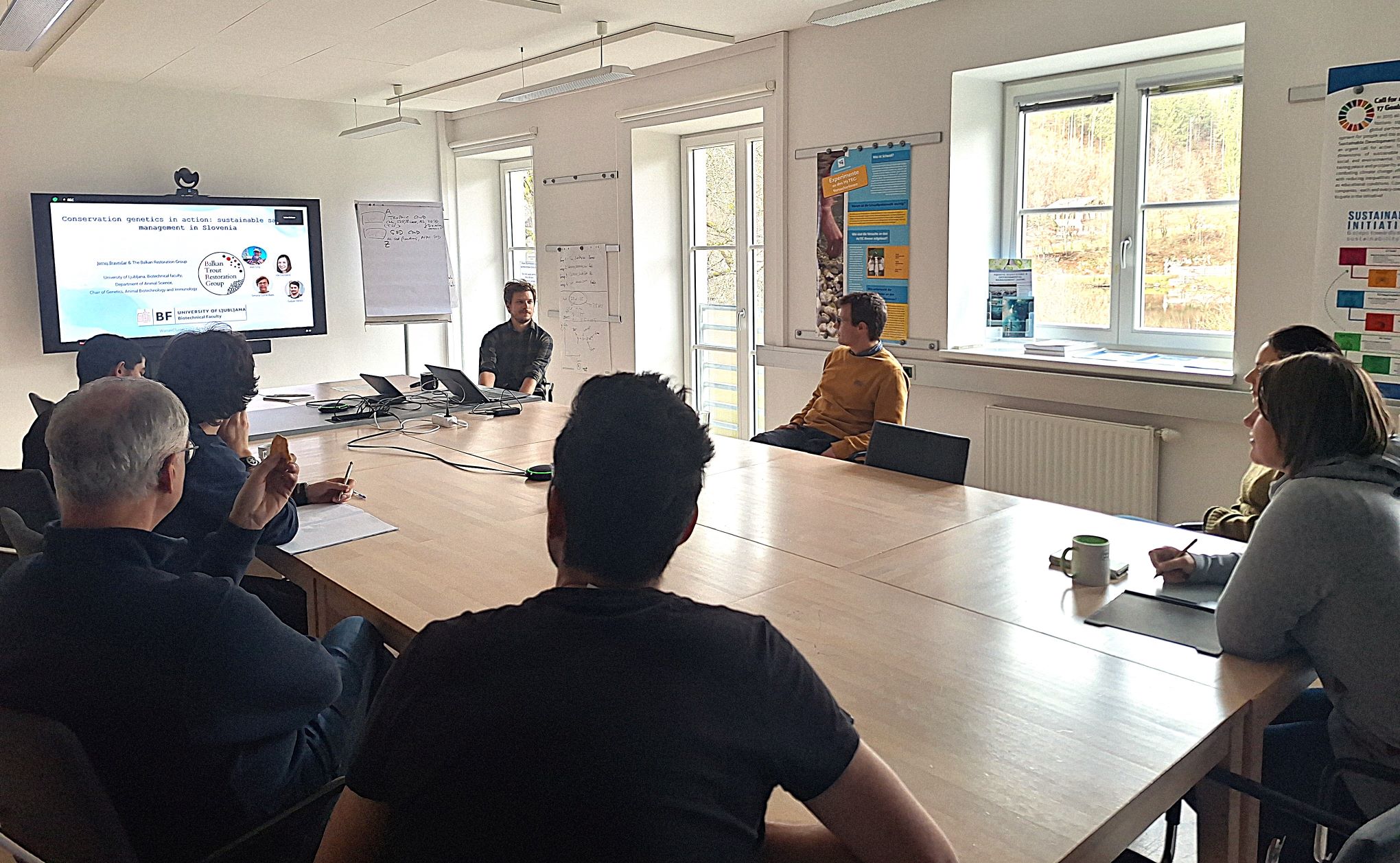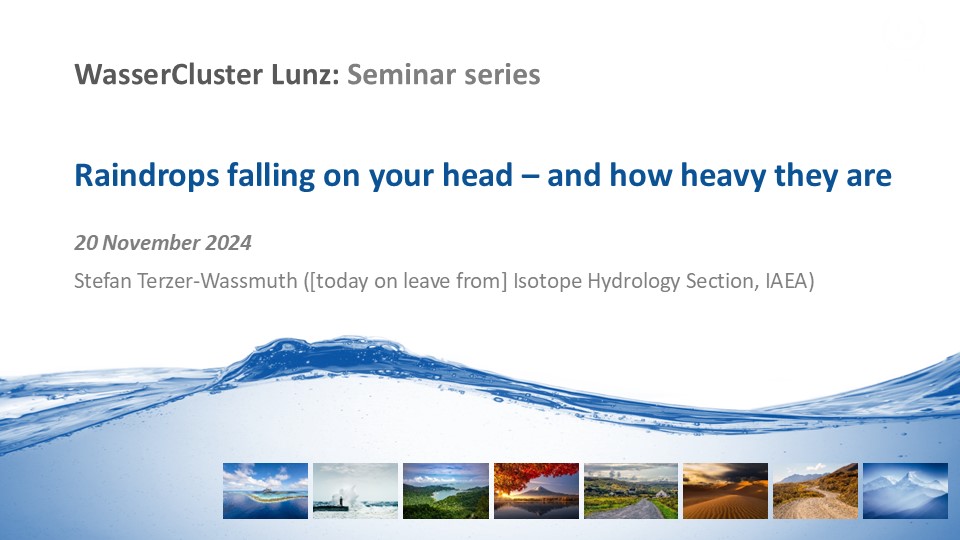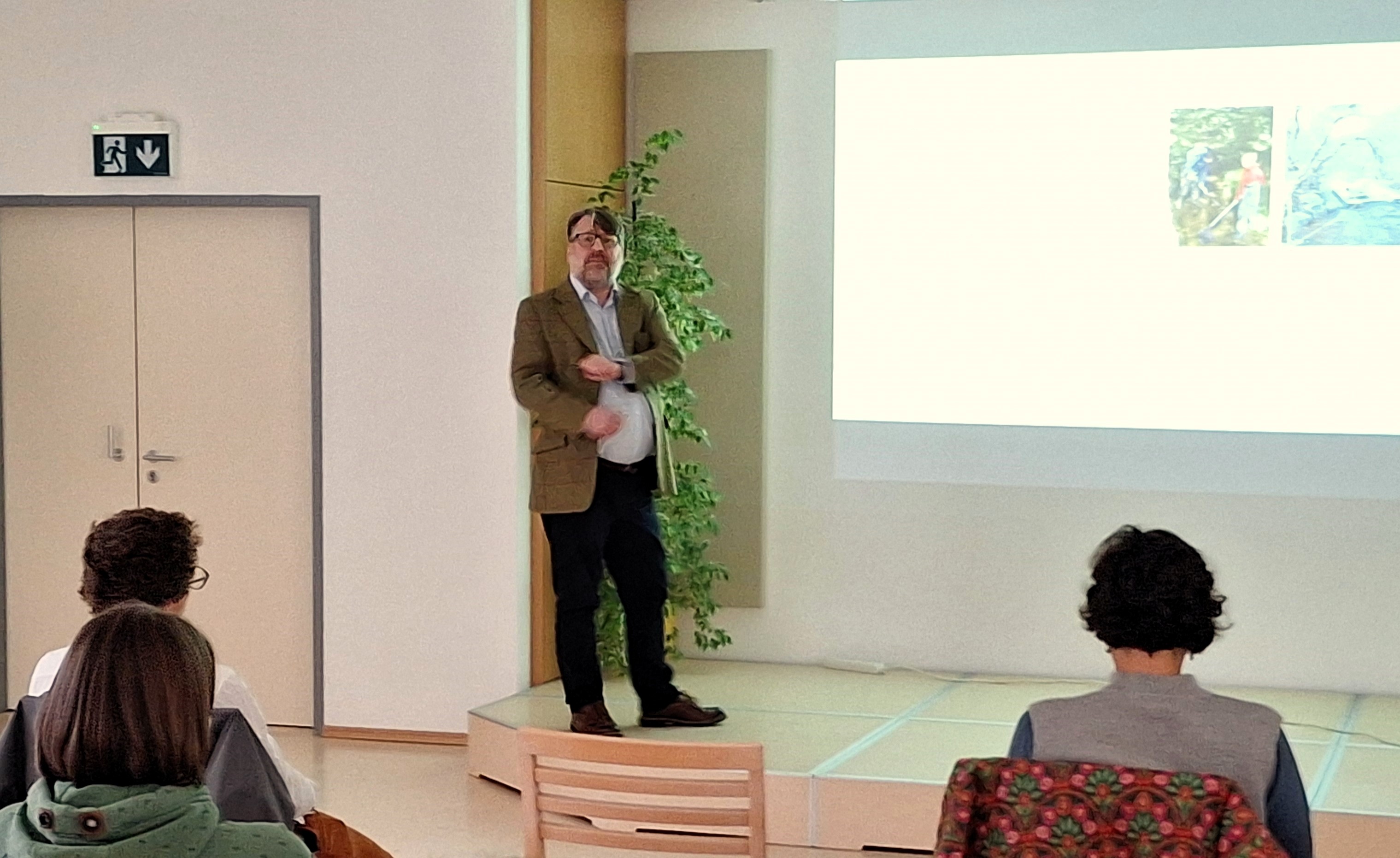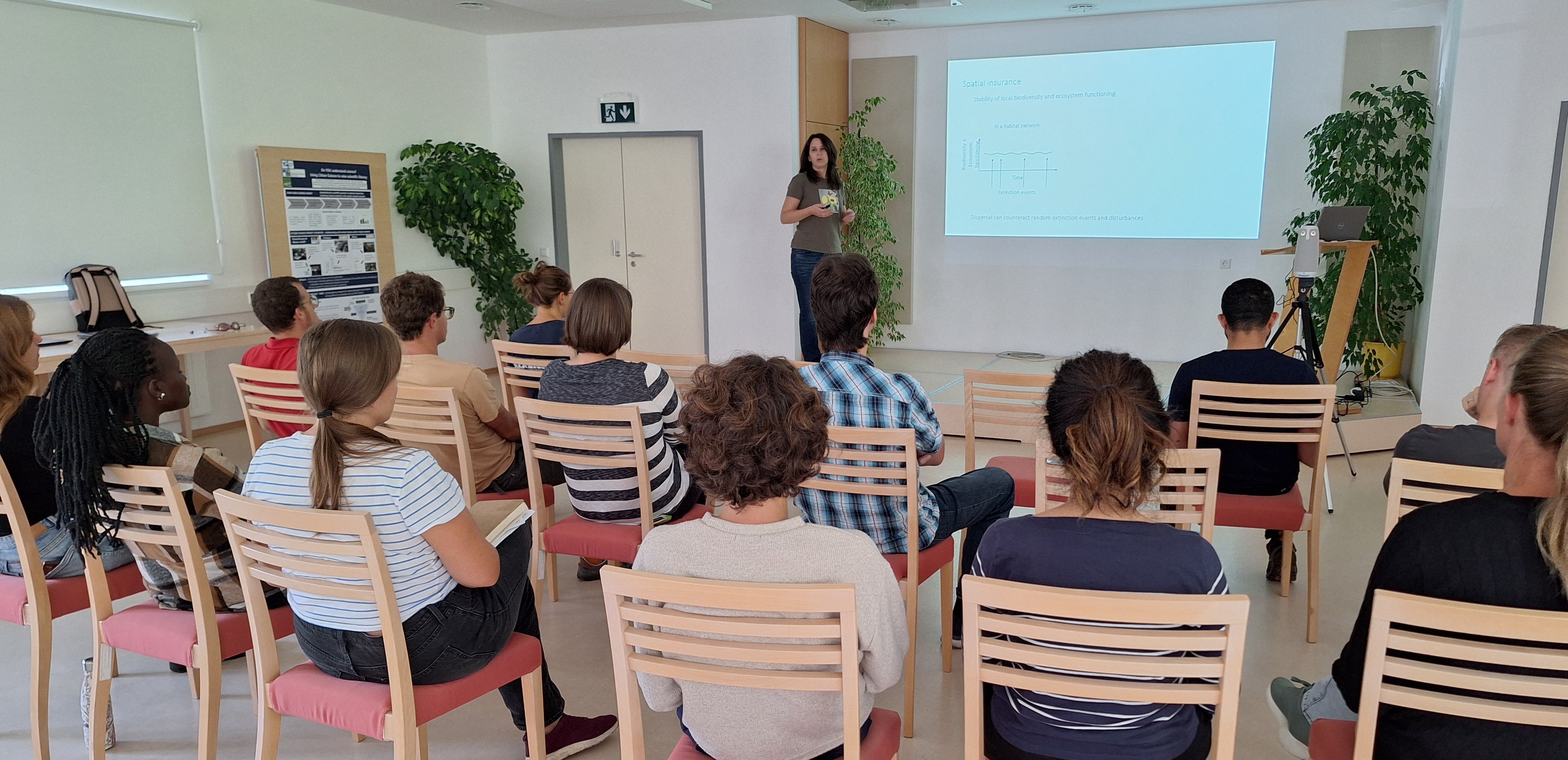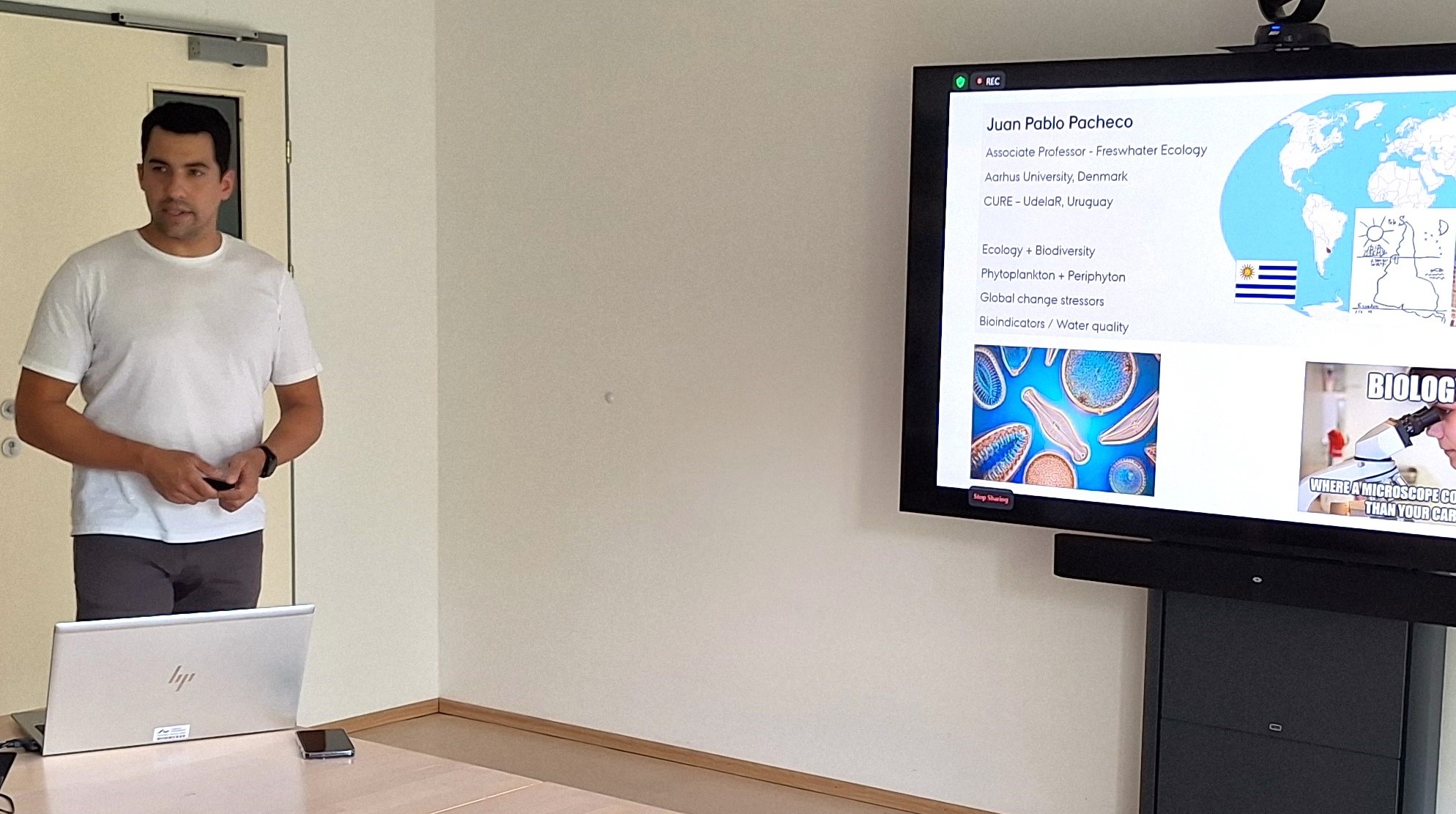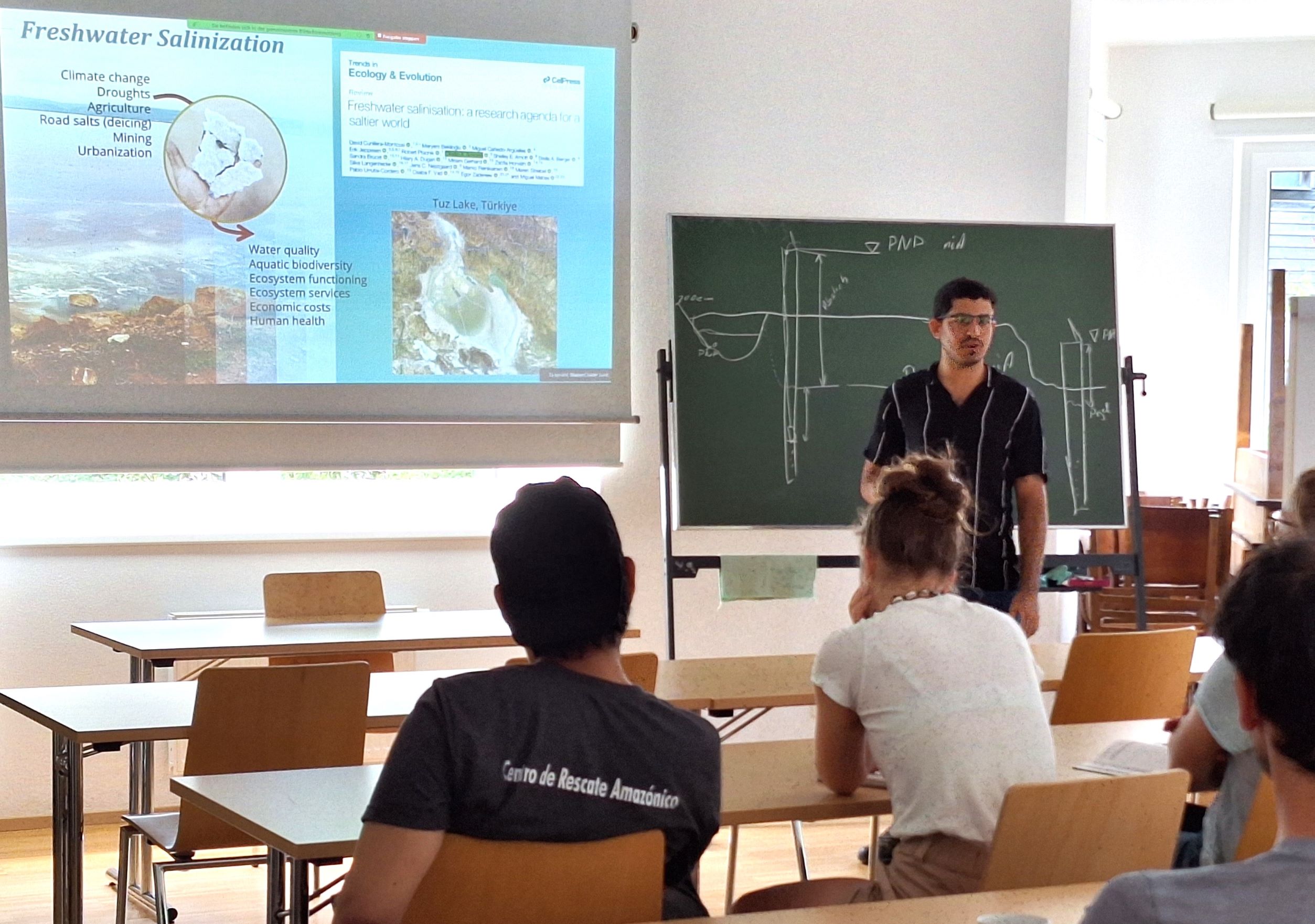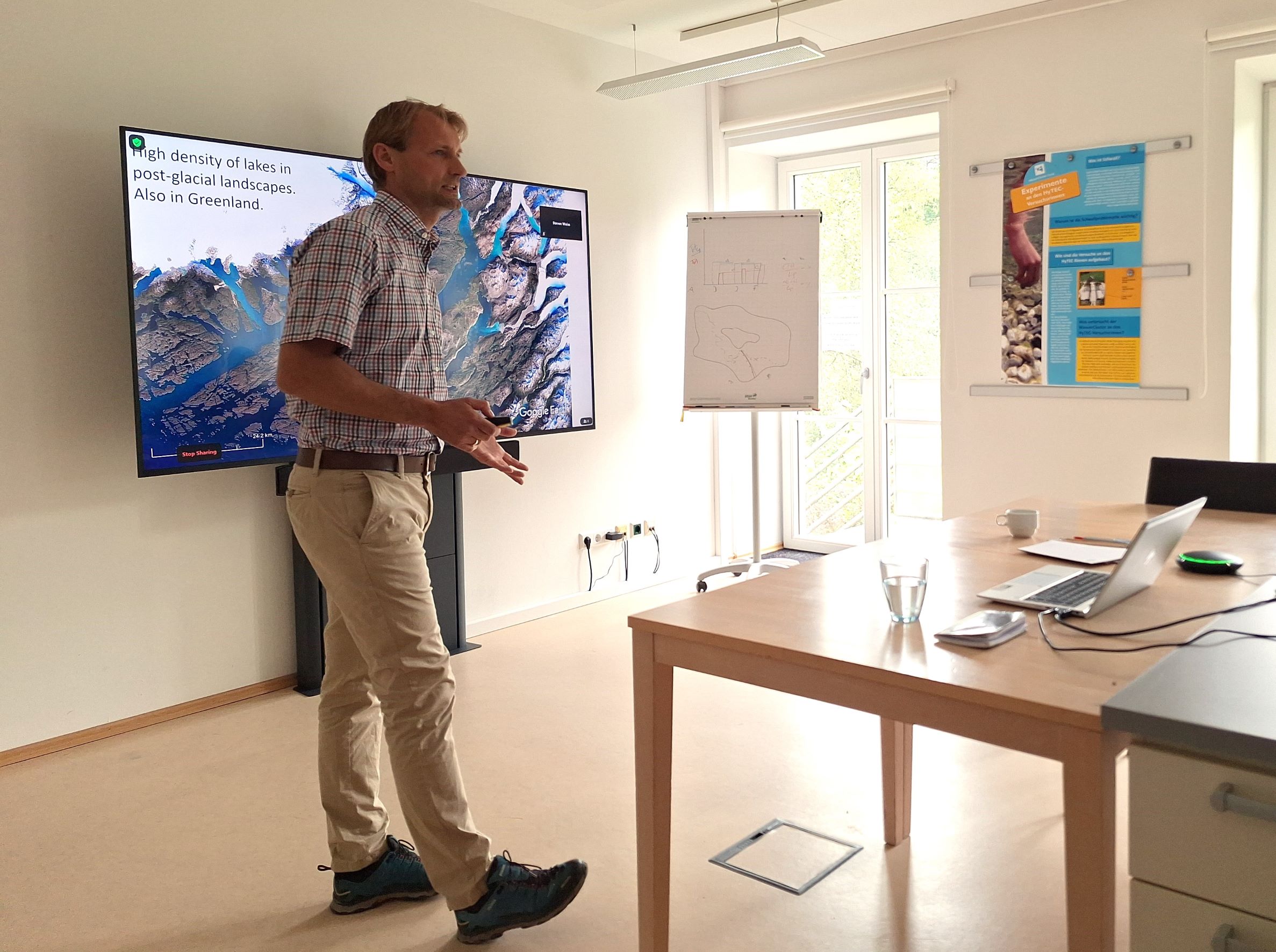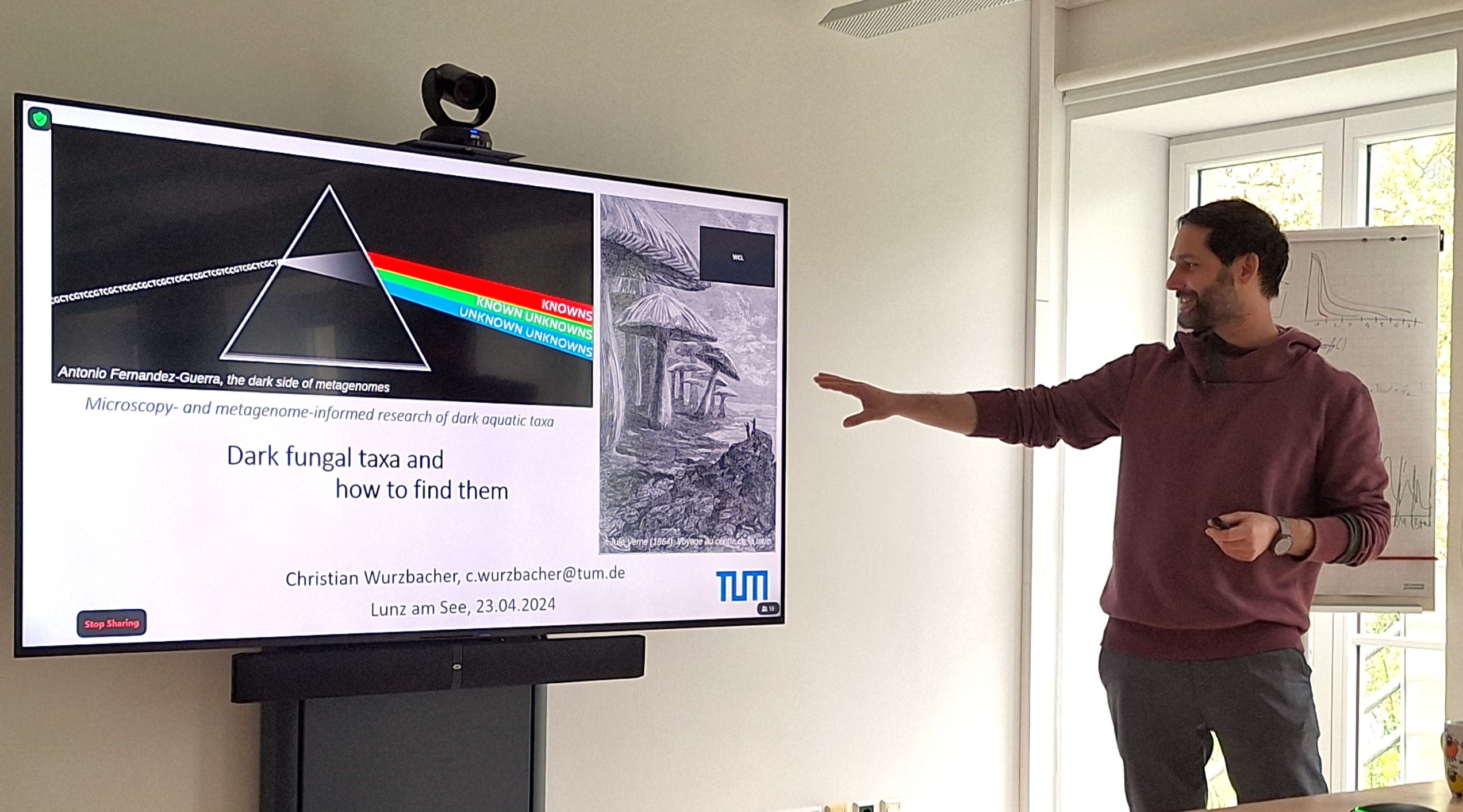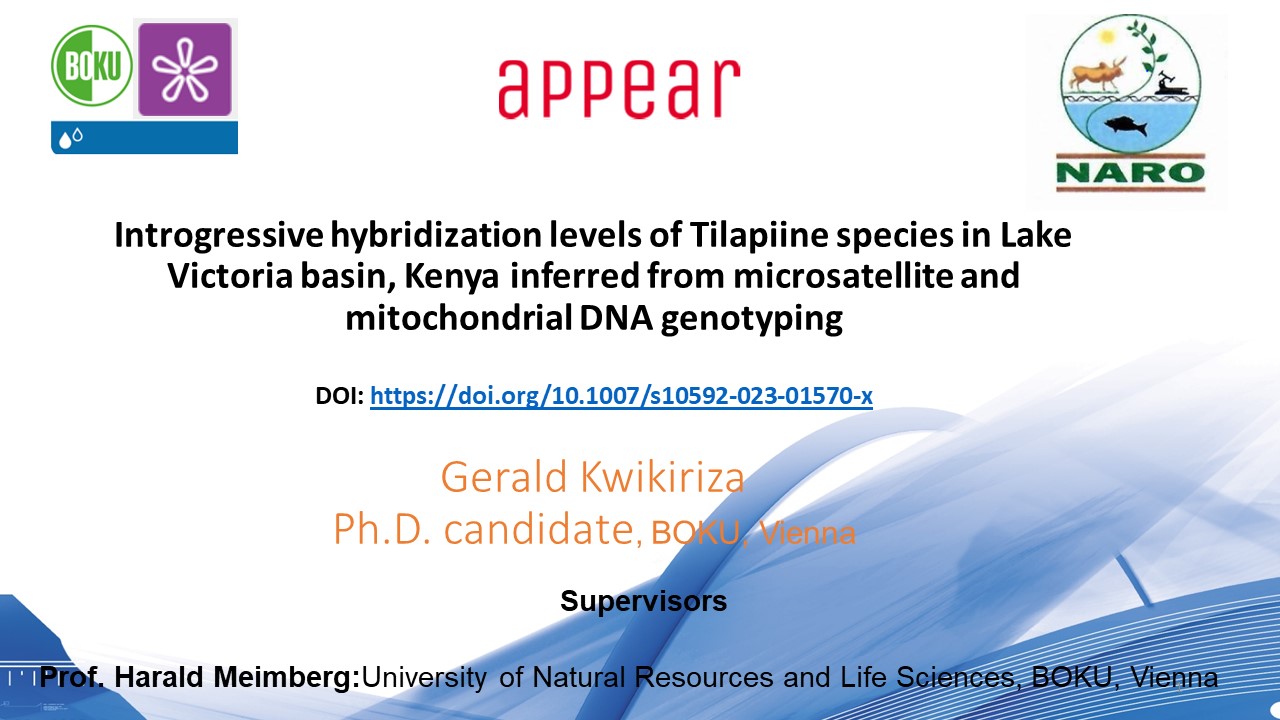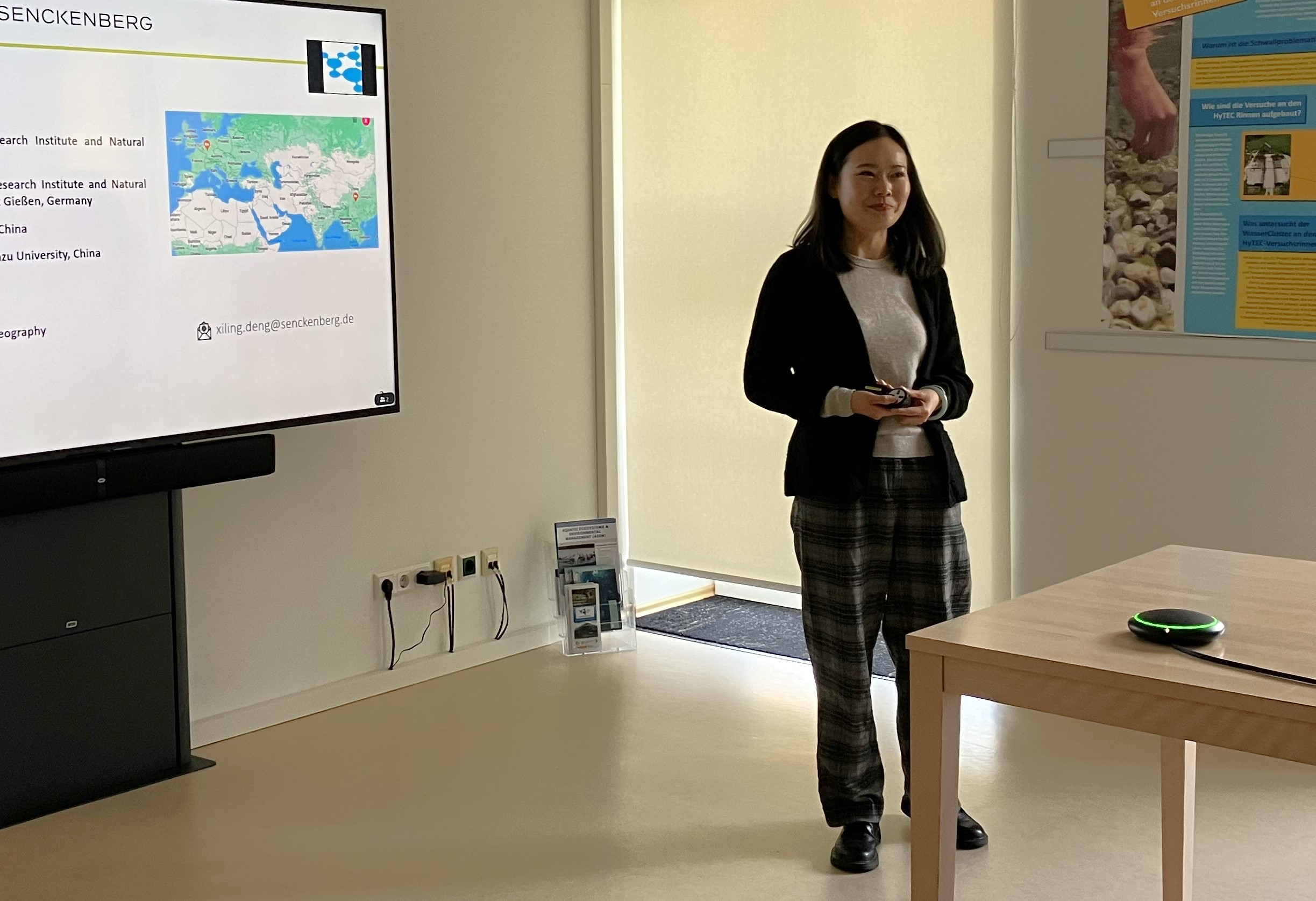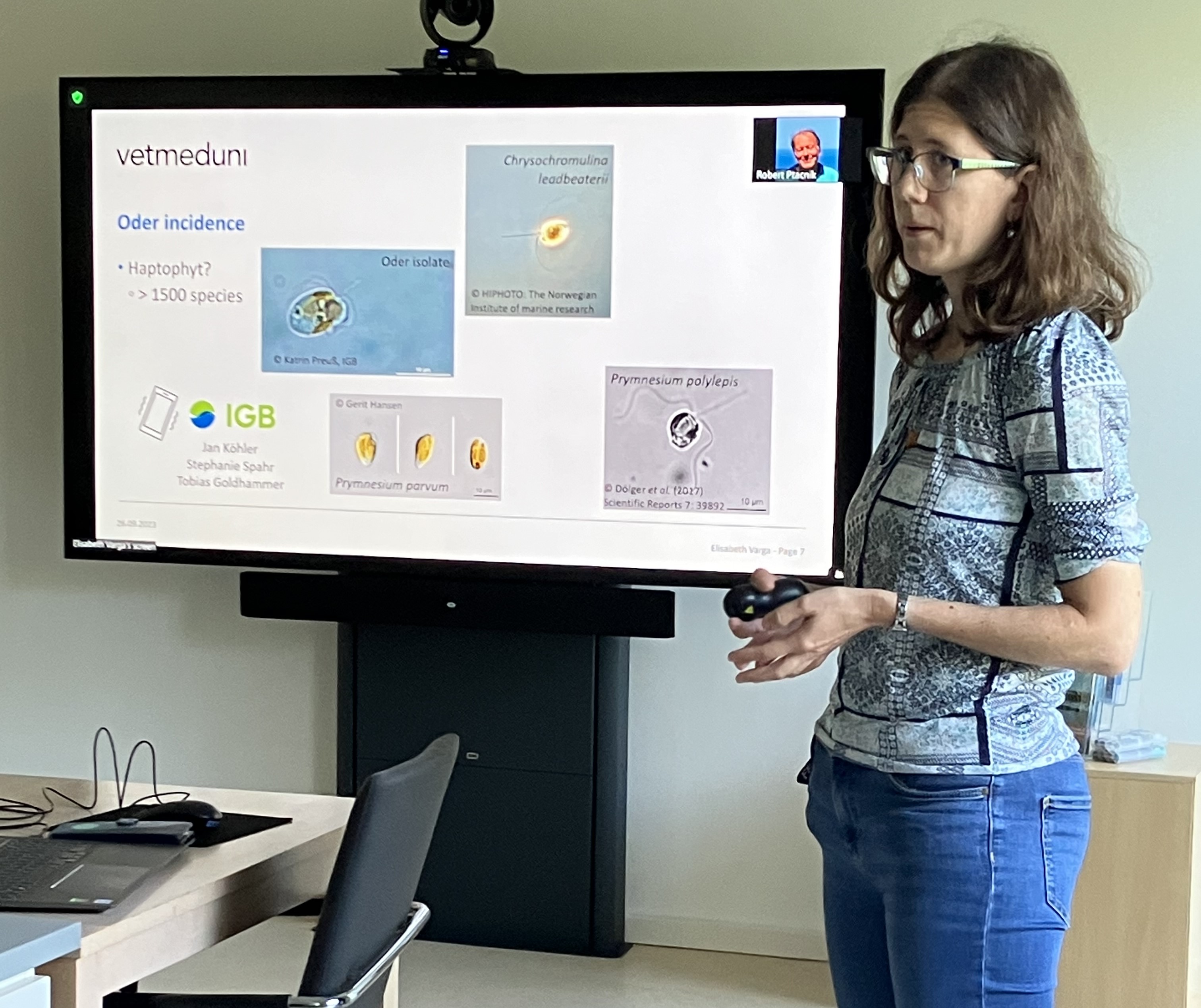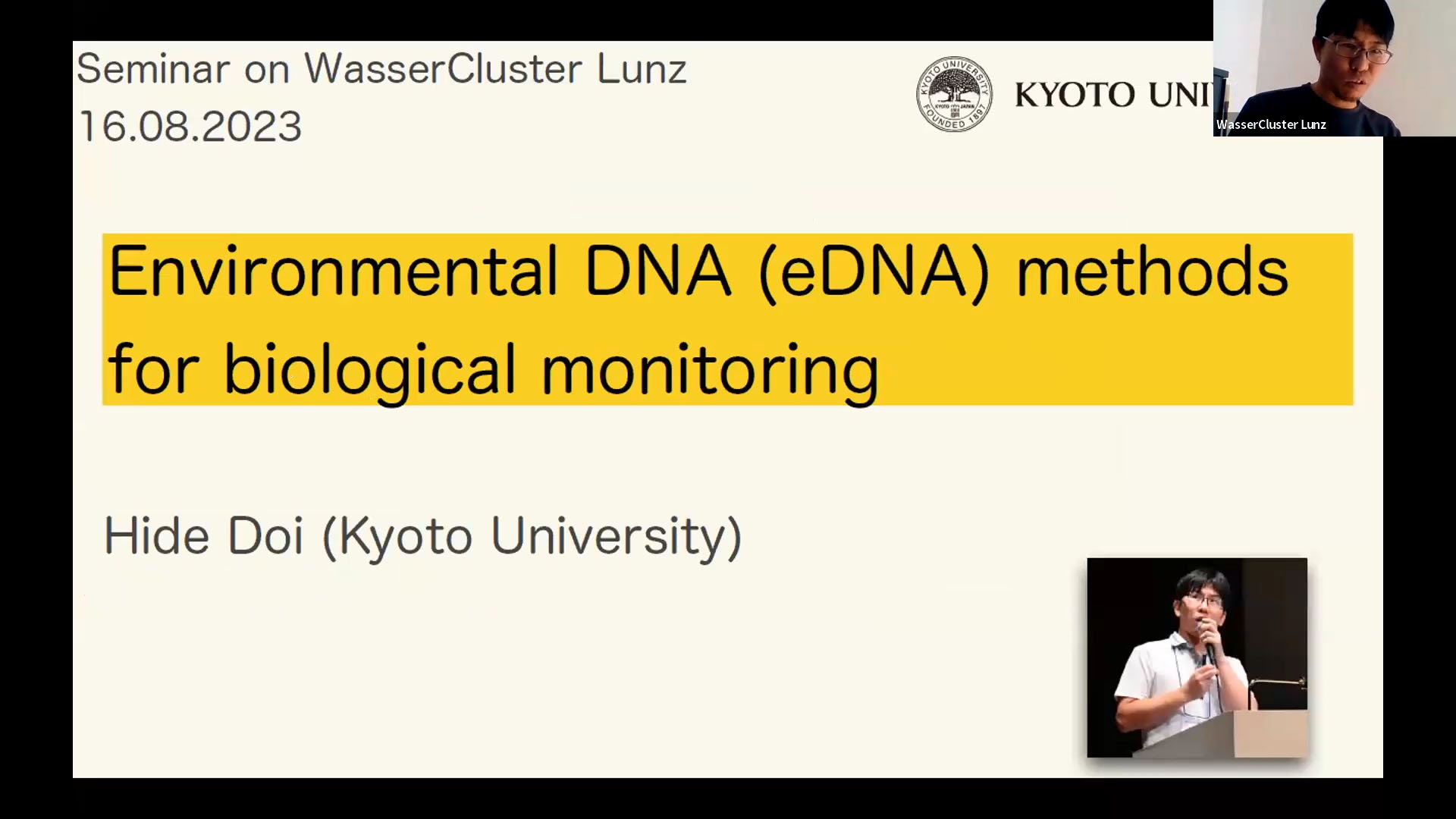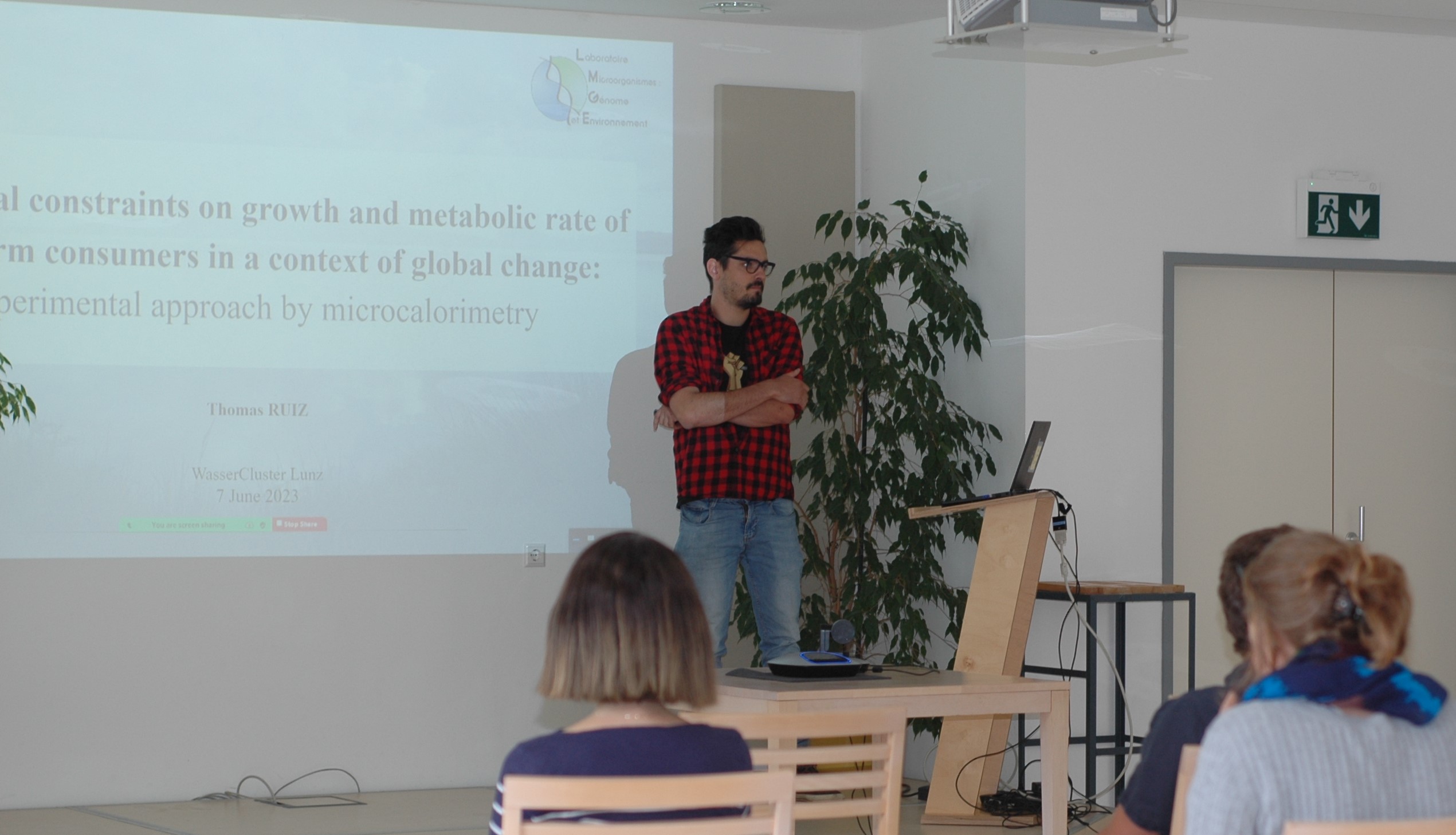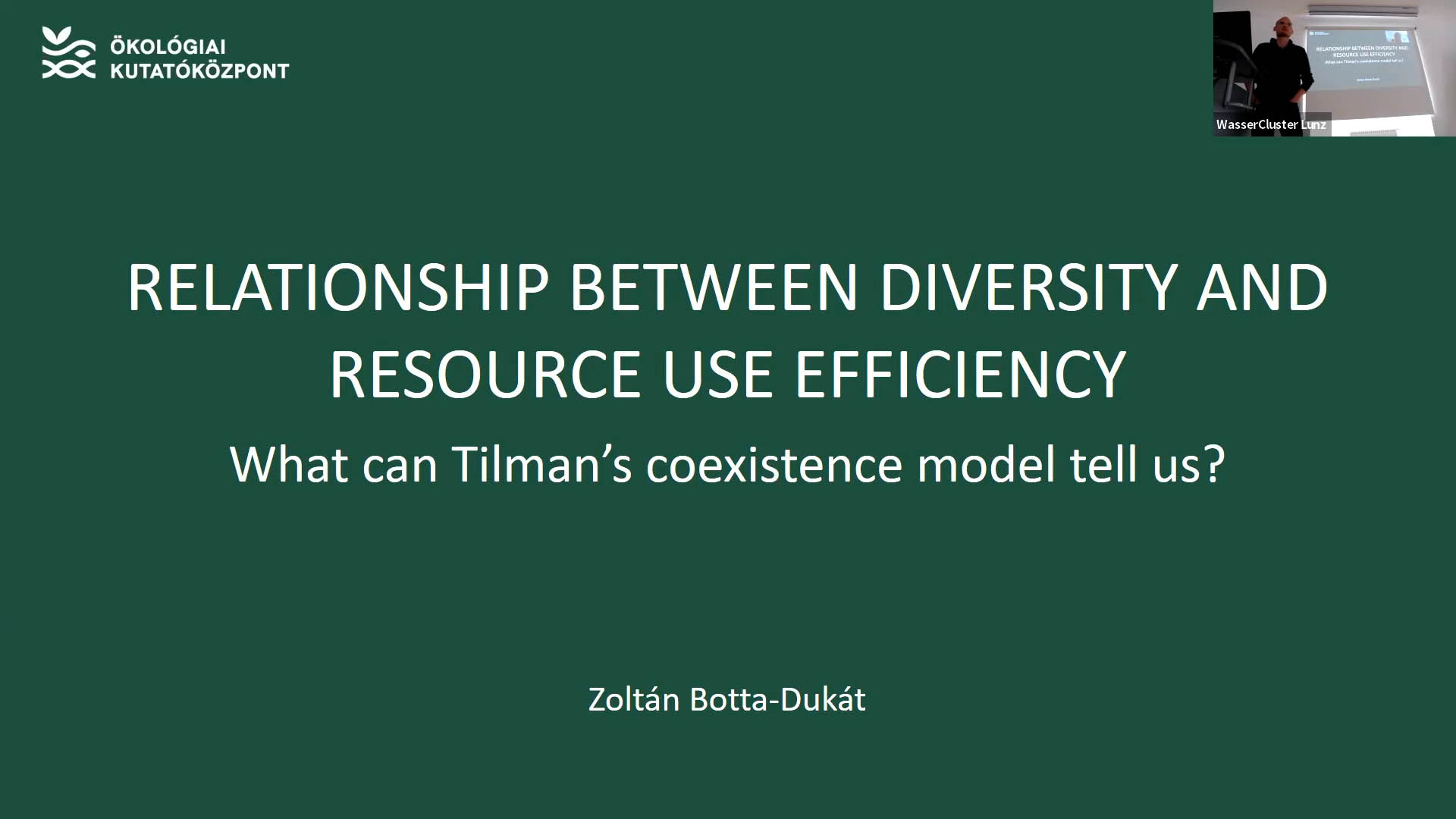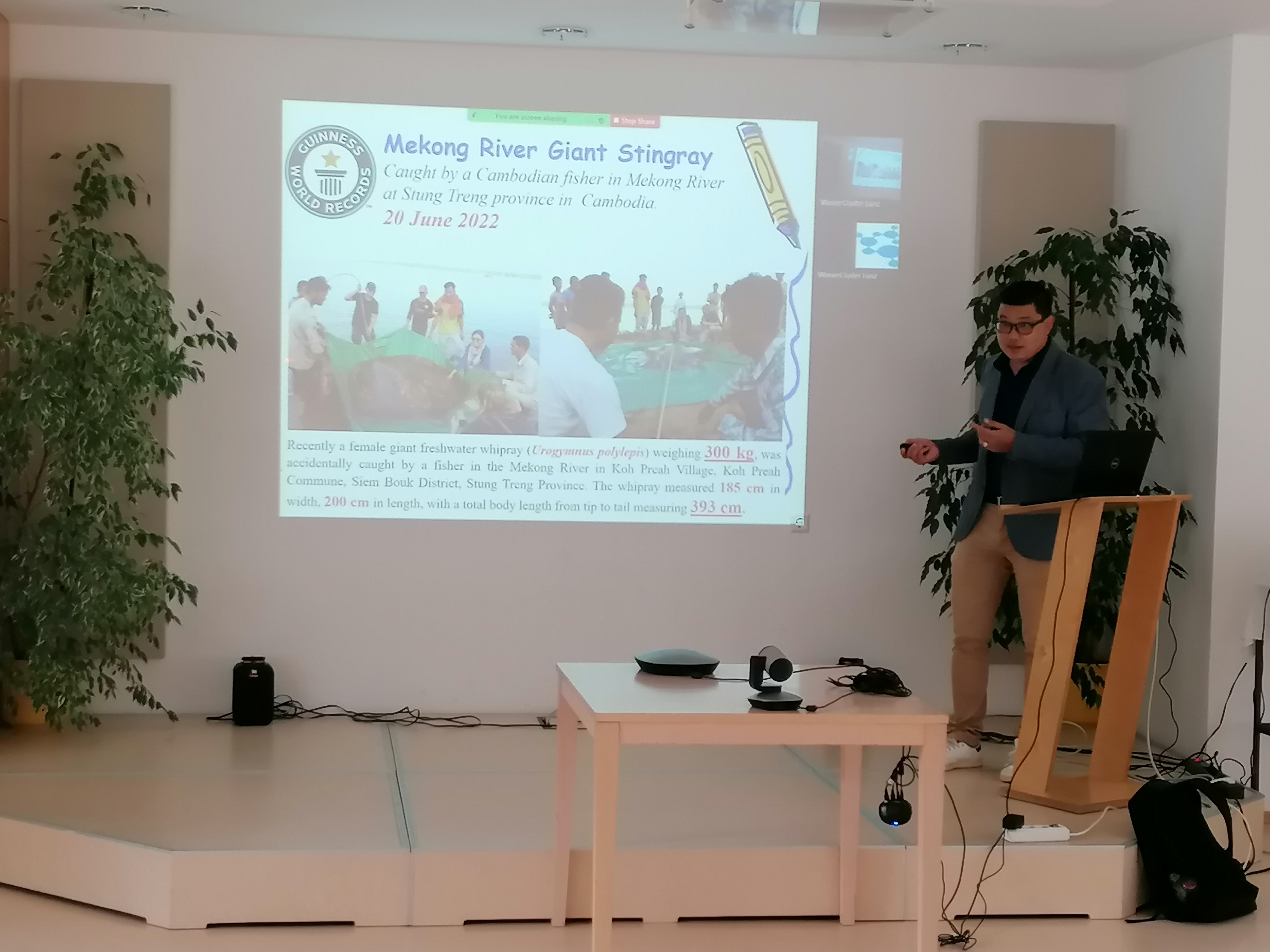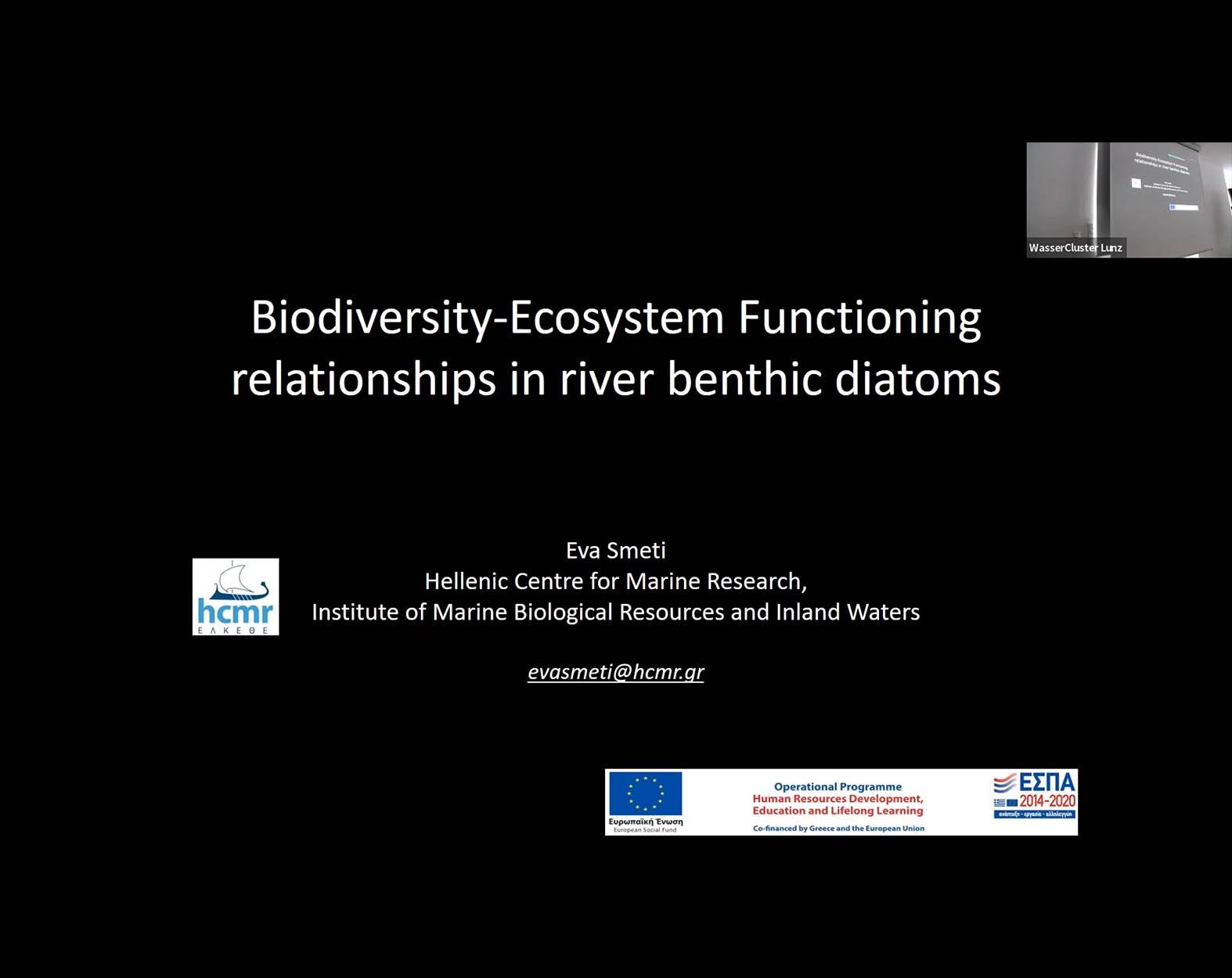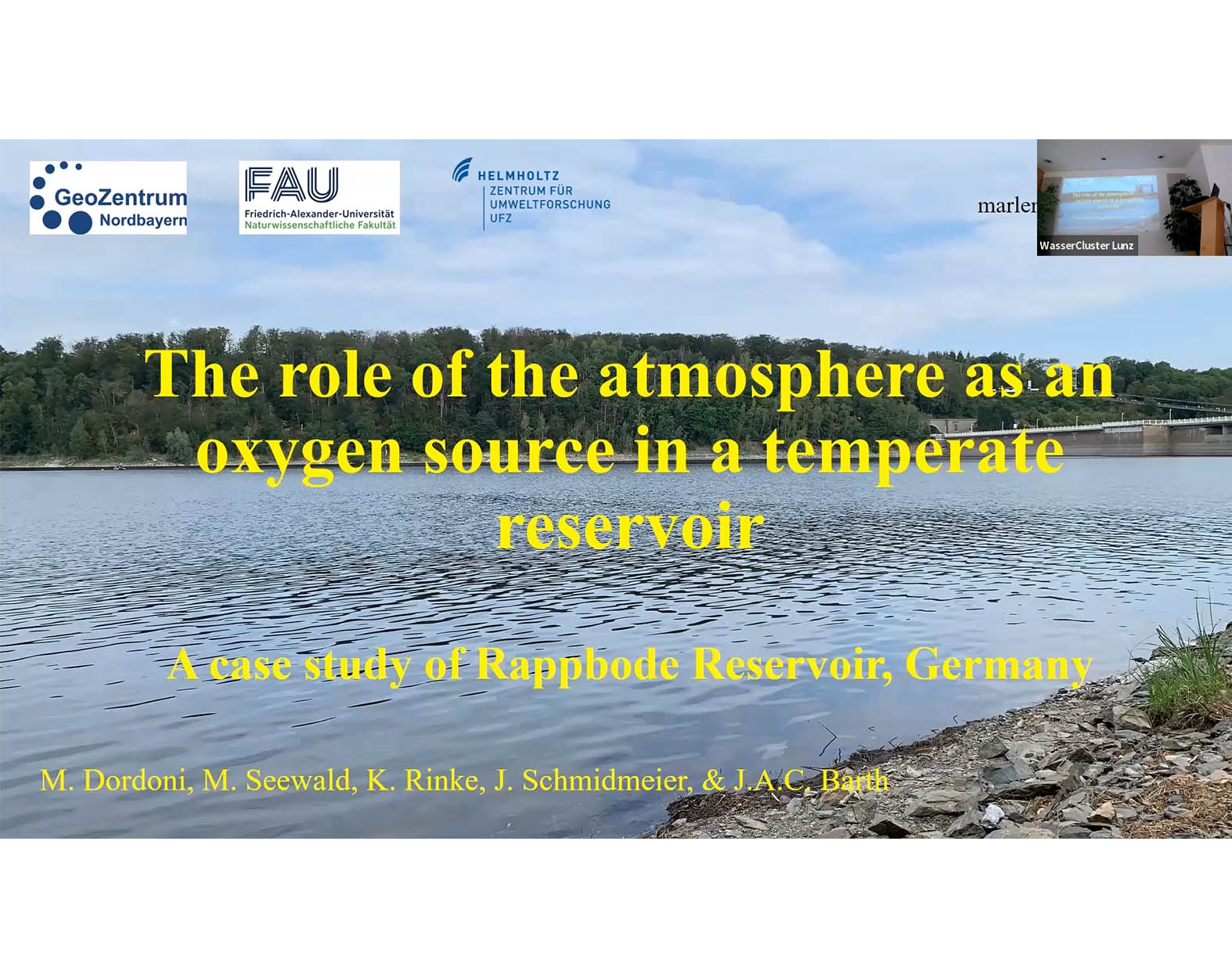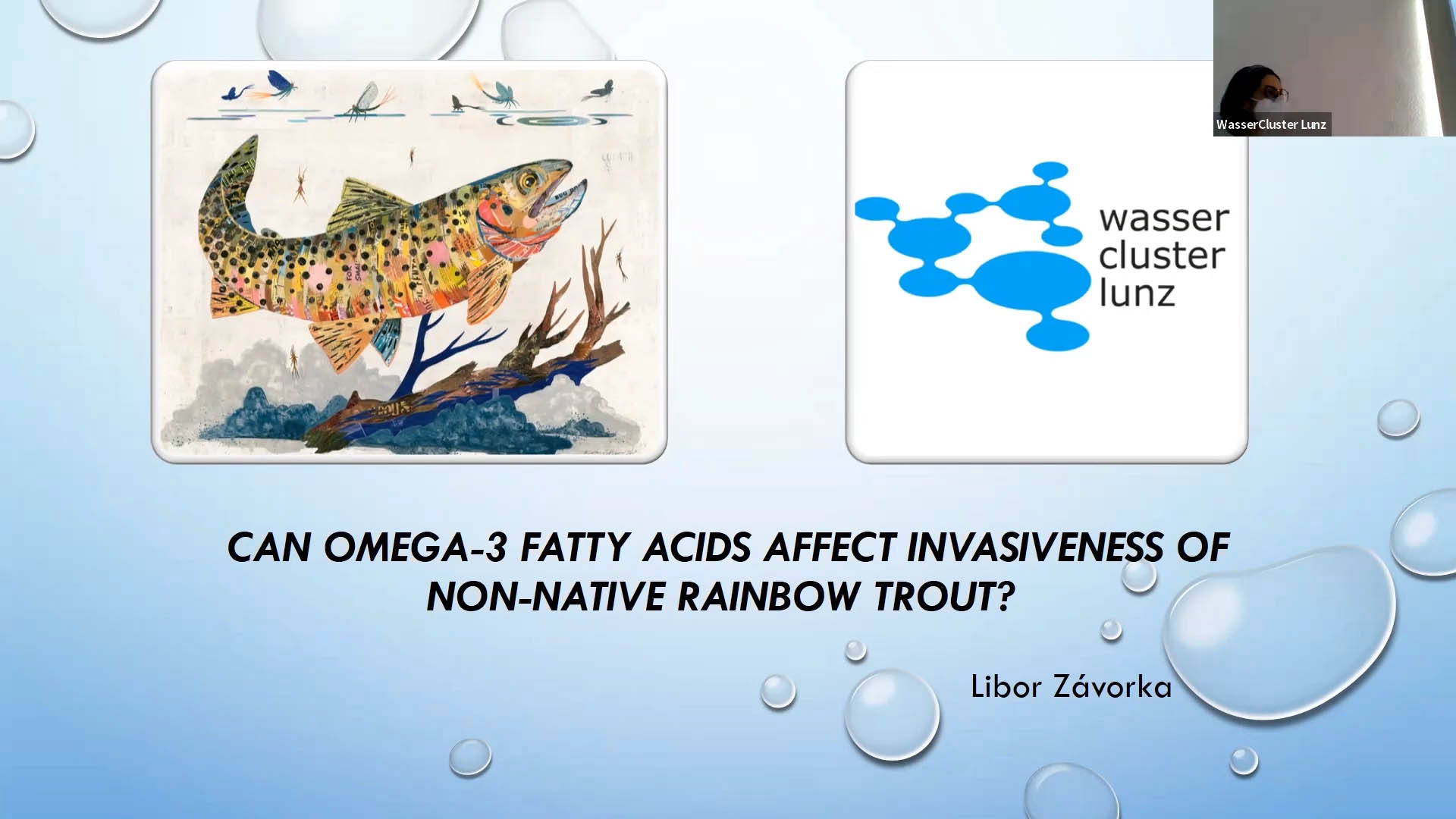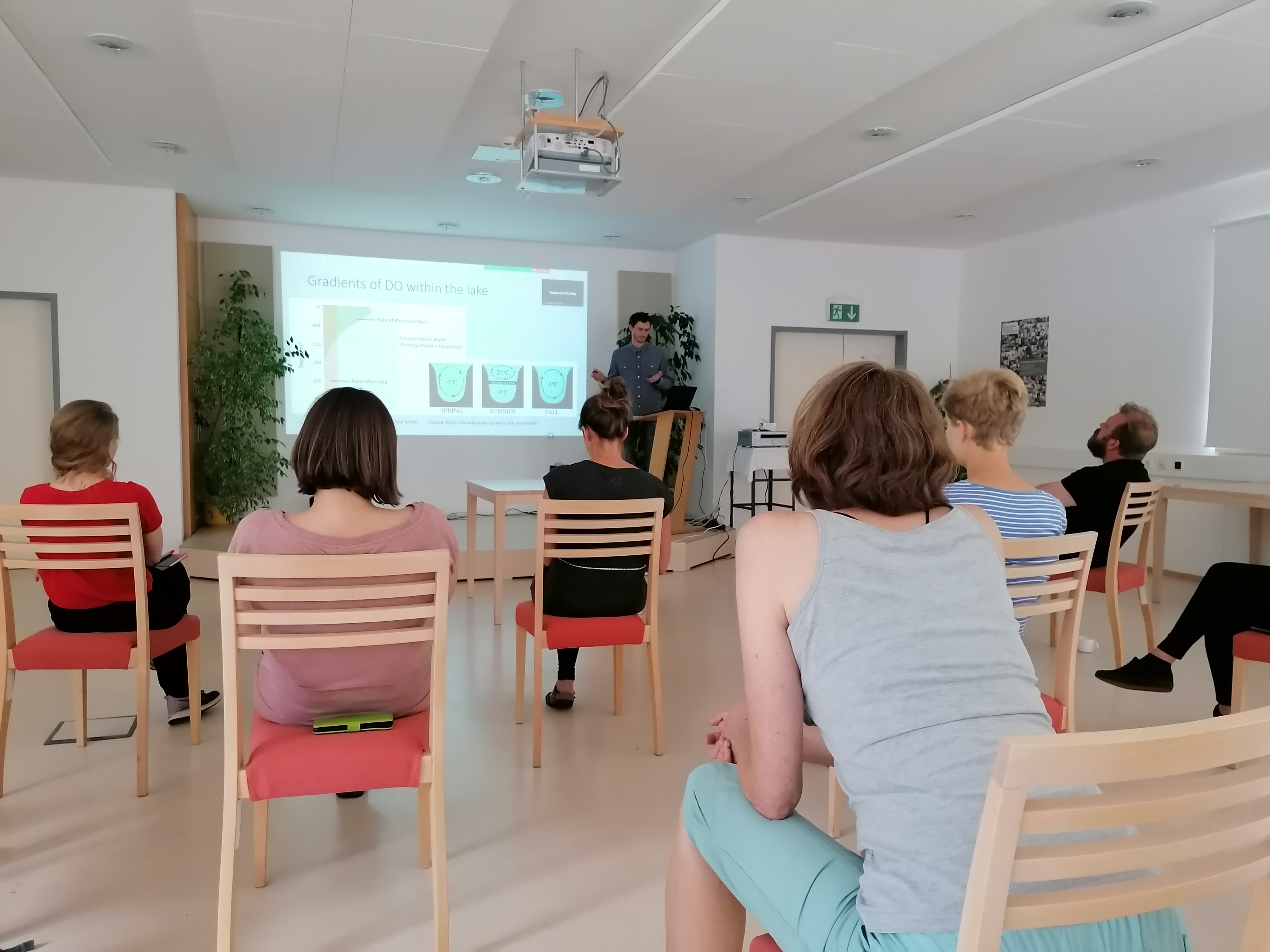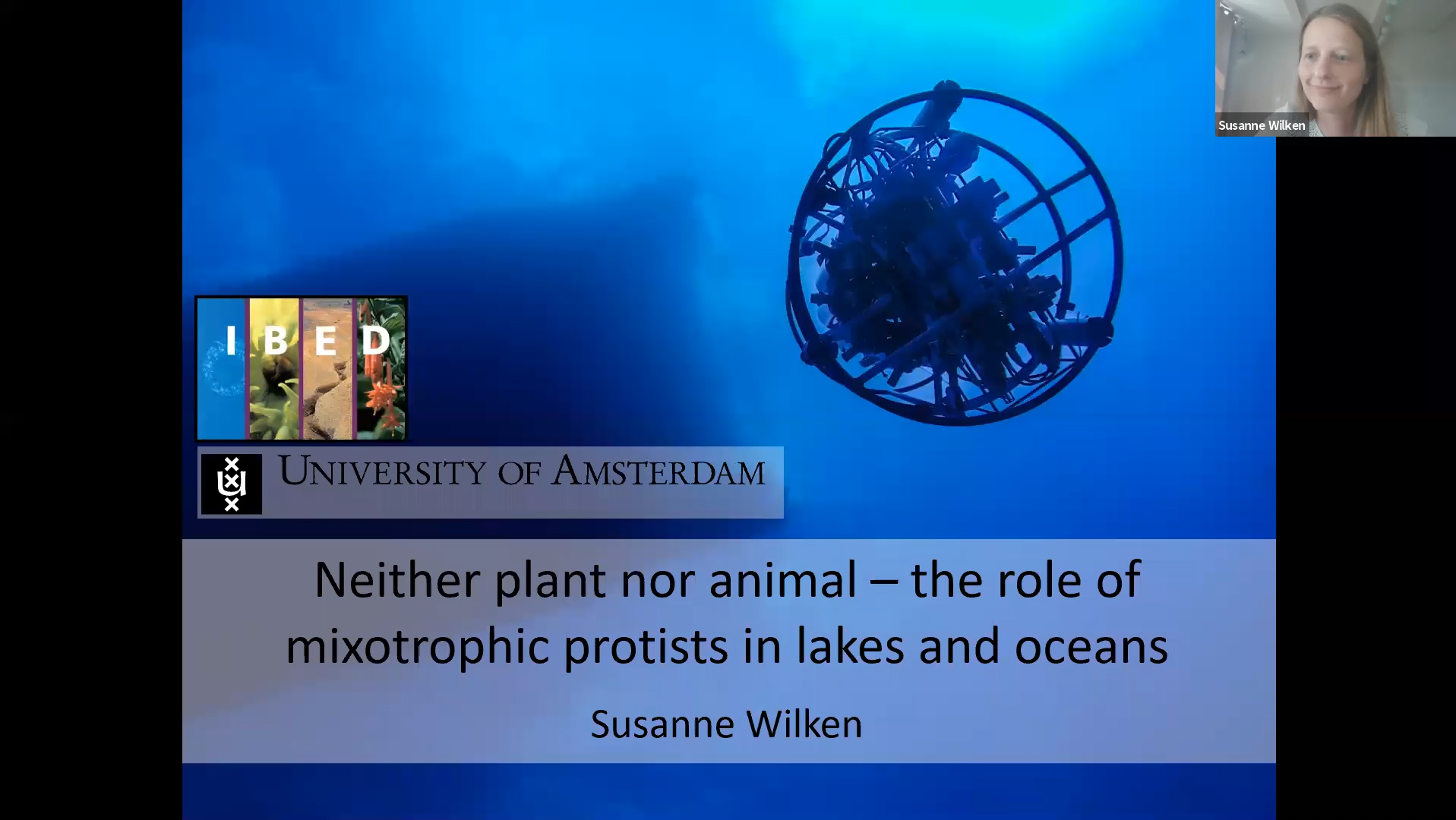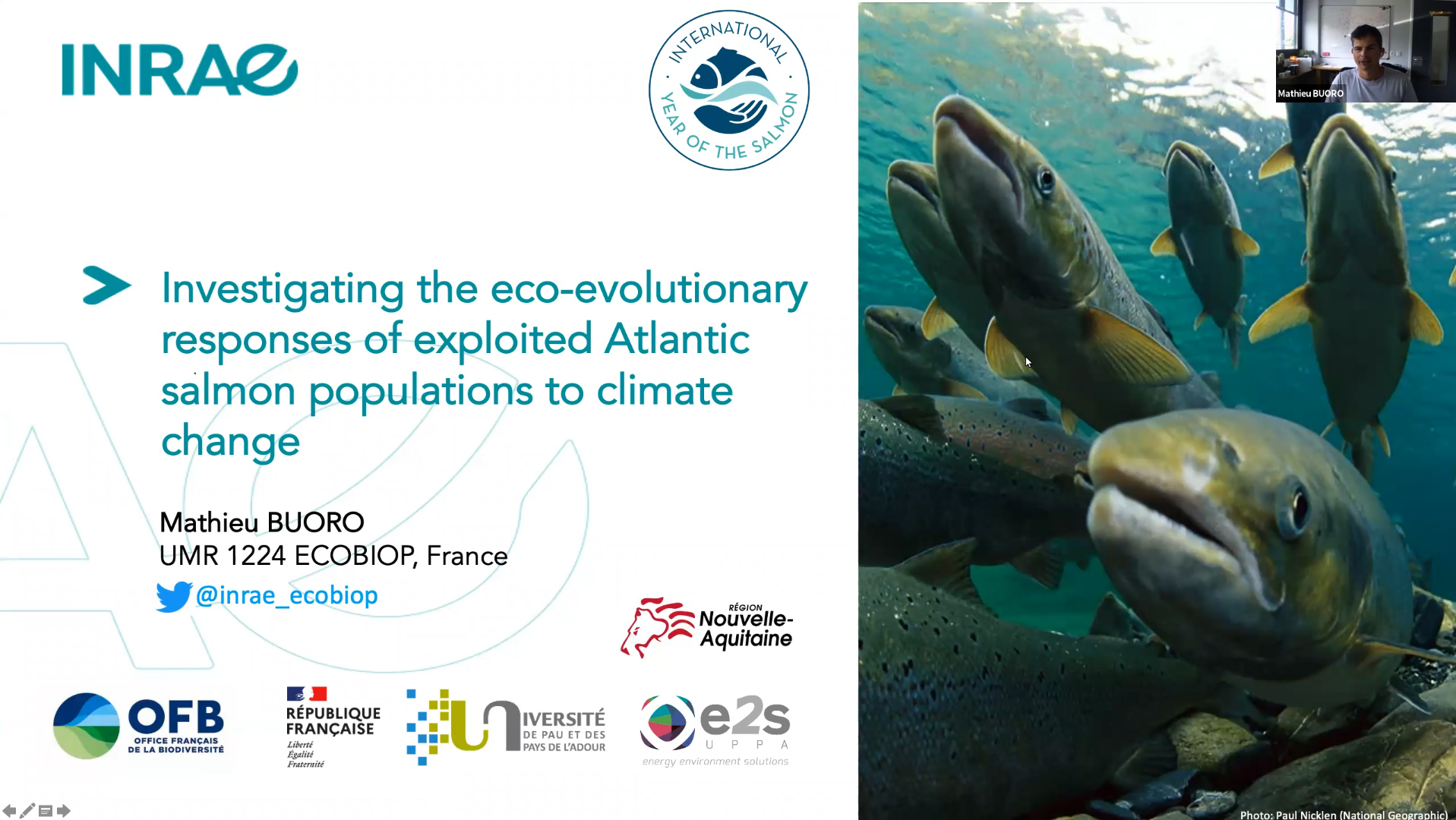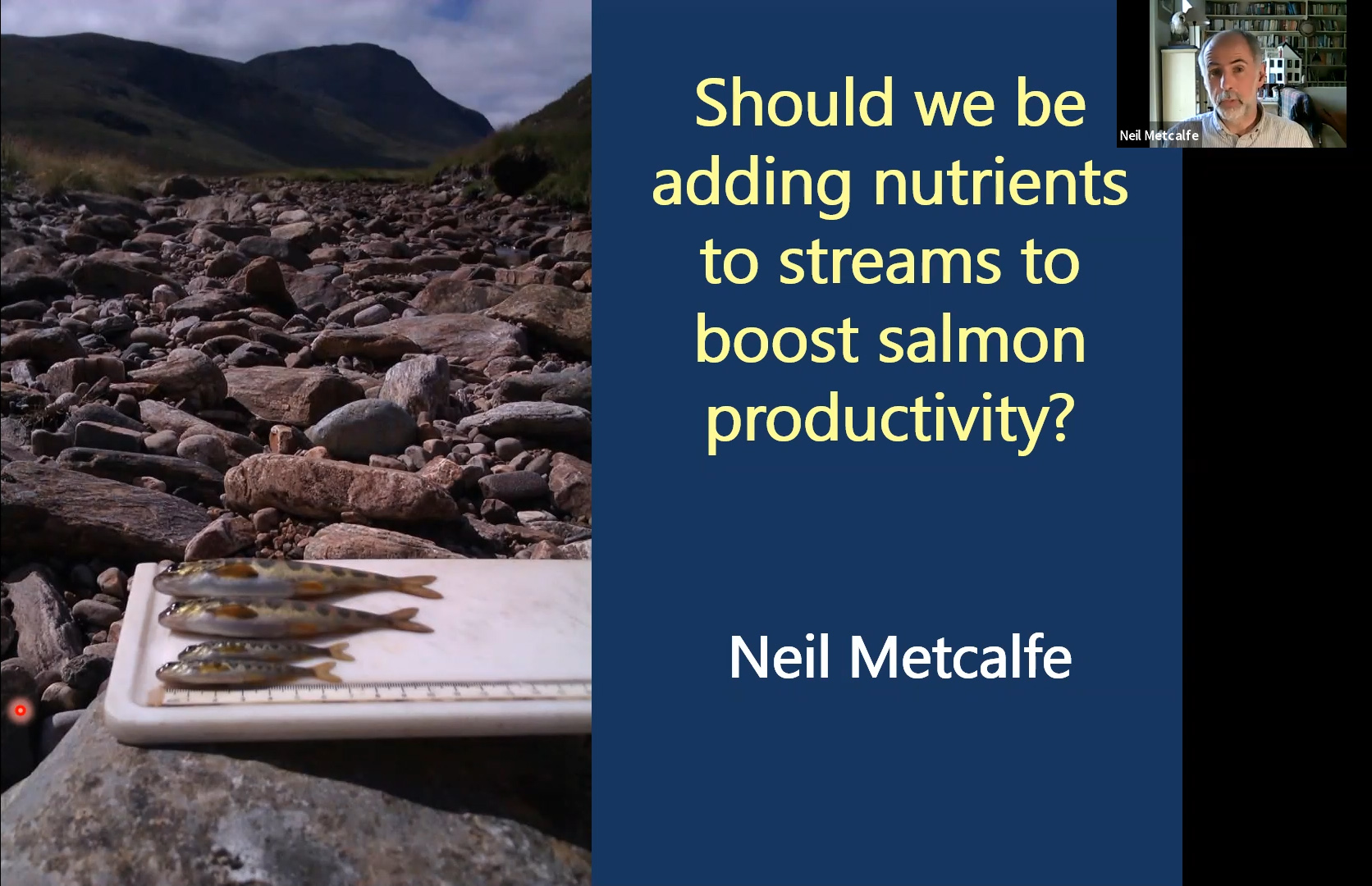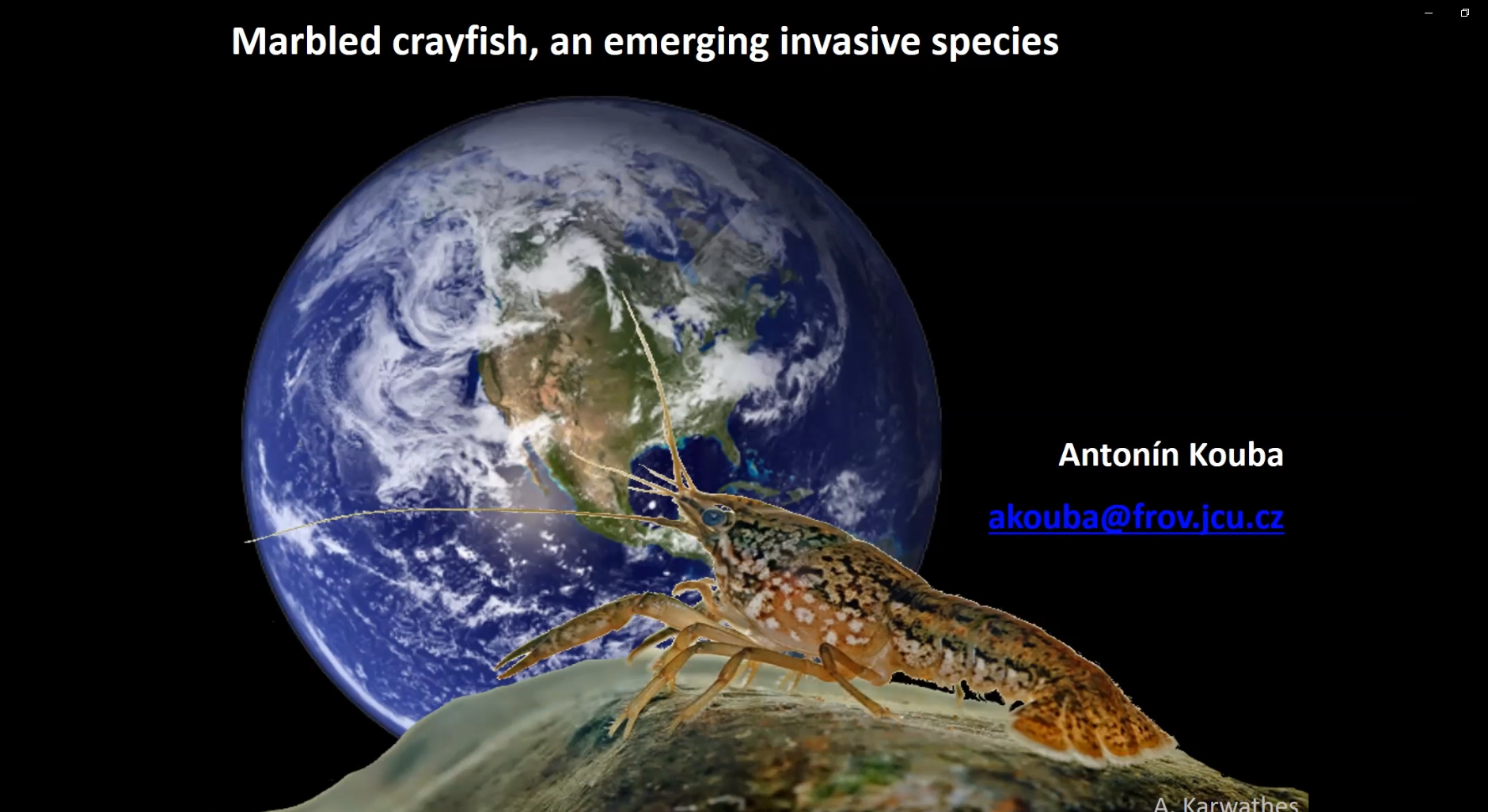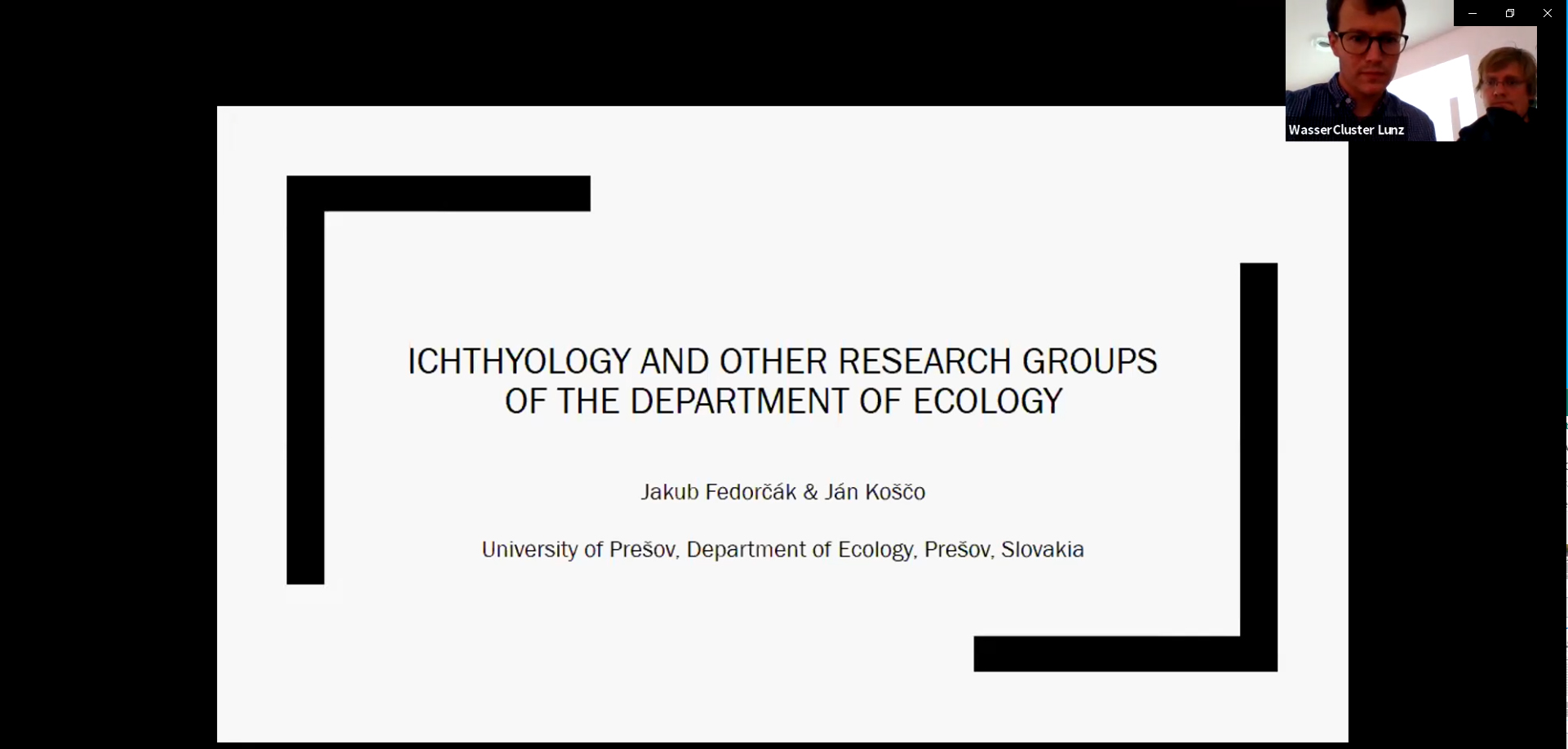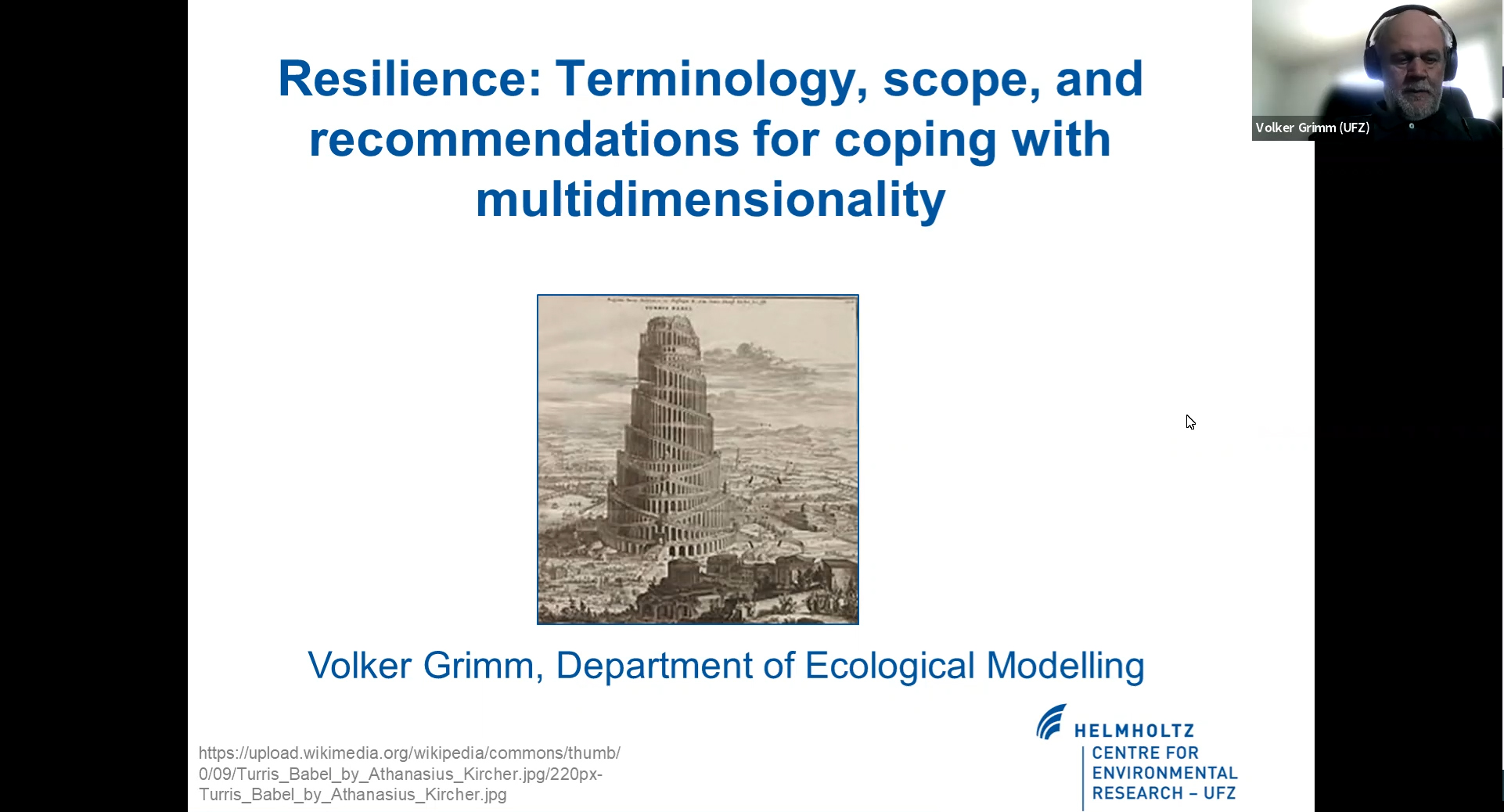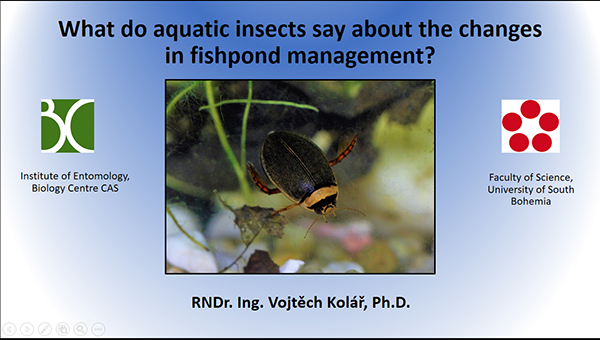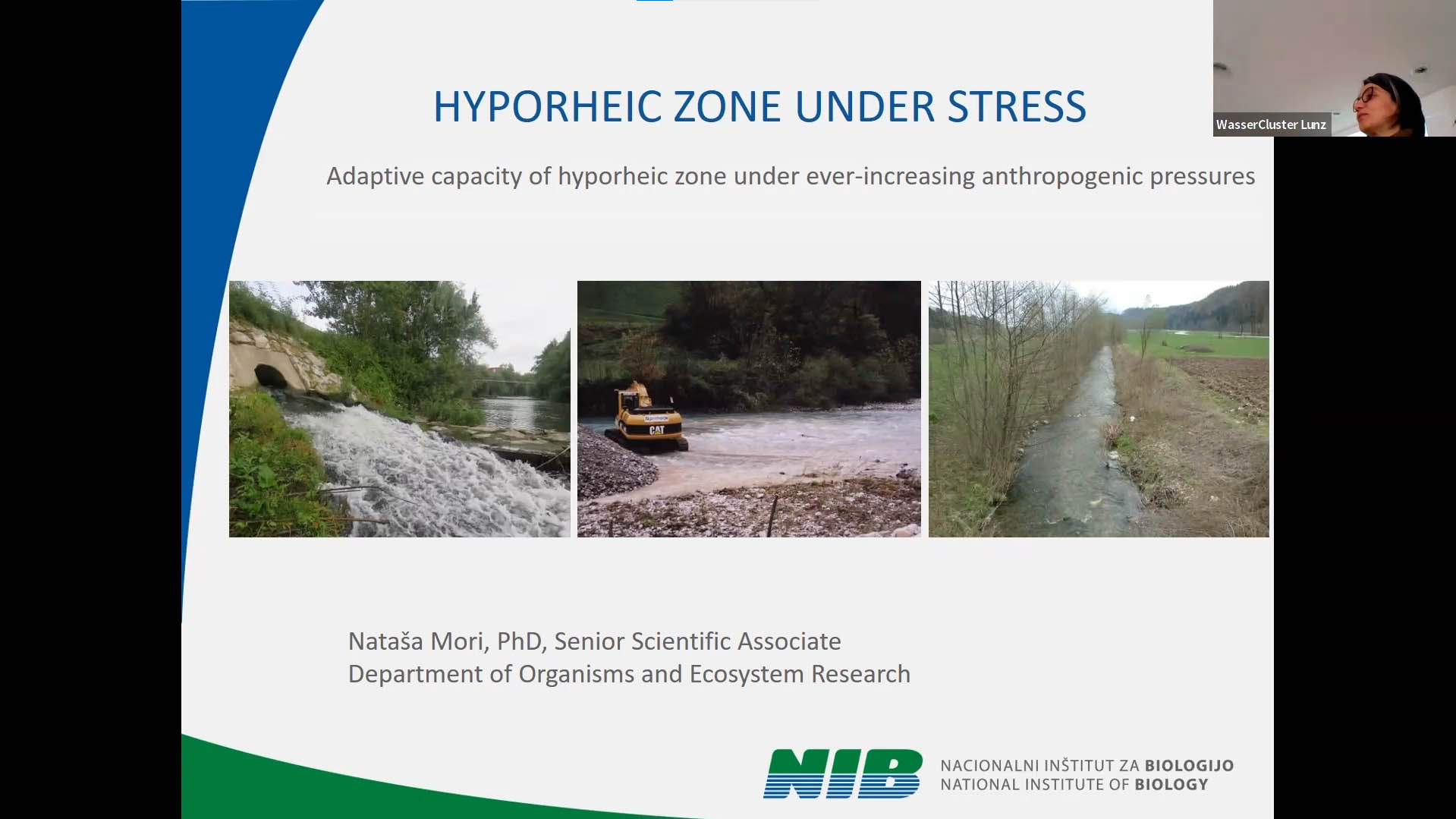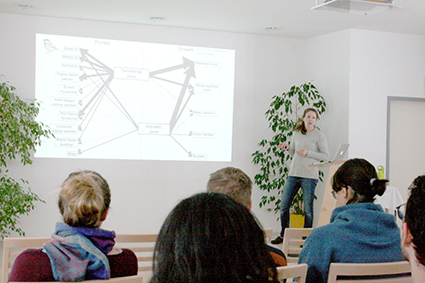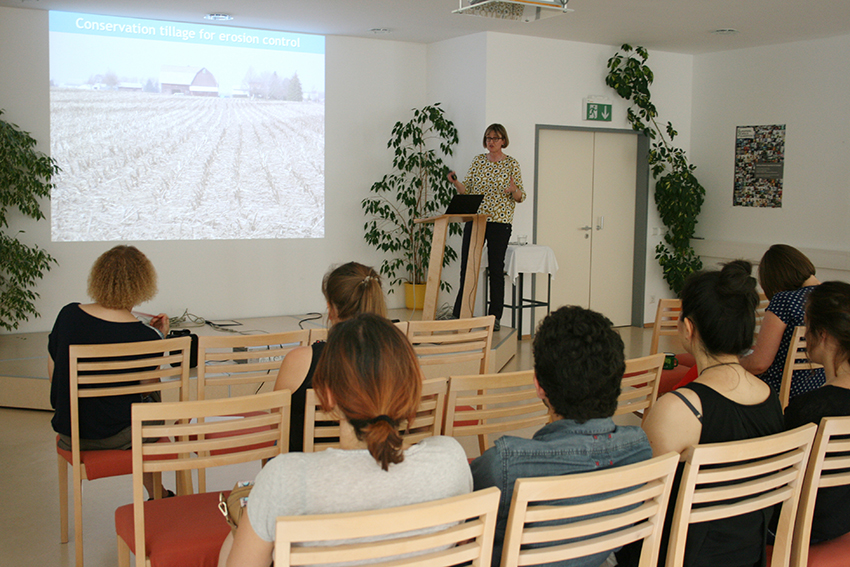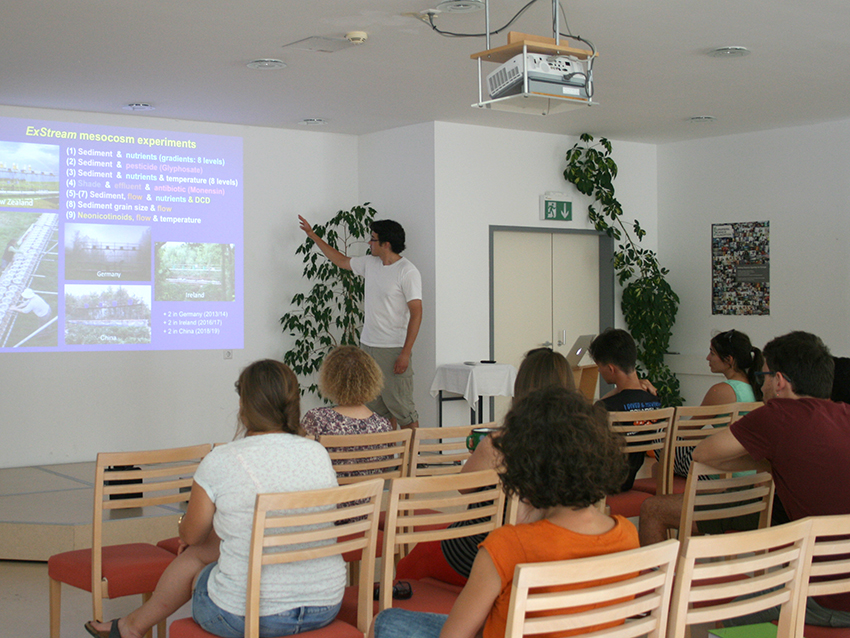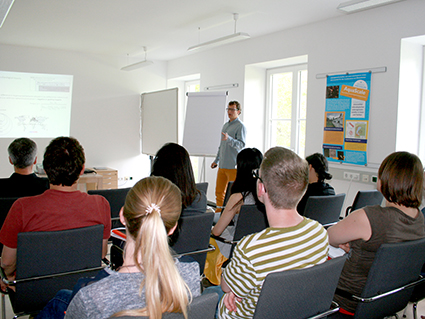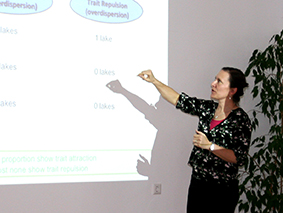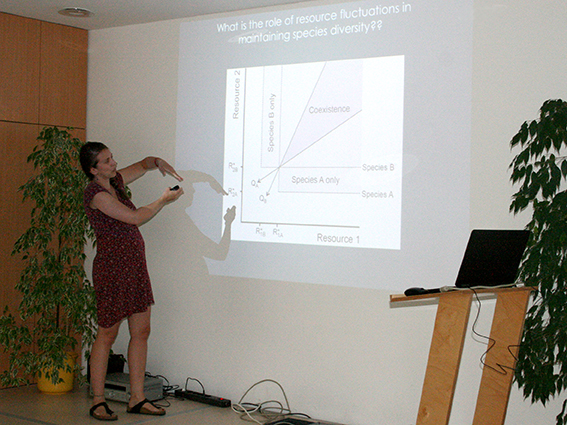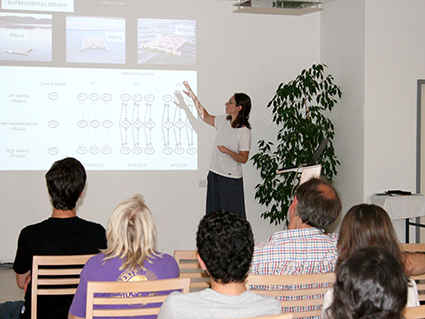|
|
Kommende Seminare 2026Um einen fachlichen Diskurs zu fördern und die Interaktion zwischen Forschenden, Studierenden und anderen Interessierten zu ermöglichen, lädt der WasserCluster Lunz regelmäßig renommierte Wissenschaftler*innen aus aller Welt nach Lunz ein. Location: WCL Seminarraum(SR): Dr. Carl-Kuppelwieser Promenade 5, 3293 Lunz am See, 1. Stock; WCL Bibliothek (BIB), Erdgeschoss; BSL Seminarraum (SR): Seehof 4, 3293 Lunz am See, 1. Stock Fan Qin | University for Continuing Education Krems, Austria Um die Zoom-Details zu erfahren, bitten wir um Anmeldung zum
Sie möchten die Informationen zur "WasserCluster Lunz - Seminar Series" per E-Mail erhalten (nicht mehr erhalten)?
Senden Sie uns einfach ein E-Mail mit entsprechendem Betreff an:
|
||
Video(s) der WCL-Seminarreihe
Videos die hier angezeigt werden, wurden während einem Zoom-Vortrag der WCL-Seminarreihe aufgenommen.
|
|||
Seminare 2026
Yseult Héjja-Brichard | University of Veterinary Medicine Vienna, Austria Petri Kesti | WasserCluster Lunz, Austria |
|
||
|
|
Seminare 2025
Daphne Cortese | MARBEC (Ifemer), France Thibaut Rota | Czech University of Life Sciences, Prague Charlotte Grasset | Uppsala University, Sweden Michelle Jackson | University of Oxford, UK Pavel Horký | Czech University of Life Sciences Prague Flavia Dory | Università Bicocca di Milano, Italy Veronica Nava | Università Bicocca di Milano, Italy Allan Souza | University of Helsinki, Finland Benjamin Misteli | WasserCluster Lunz Daniele Silvestro | ETH Zurich, Switzerland Sarah Hasnain | Institut de la Mer de Villefranche, France |
||
Seminare 2024
Stefan Terzer-Wassmuth | IAEA - Water Resources Section, Austria Yann Chavaillaz | Hydro-Québec, Canada Charlotte Doebke | WCL J. Peter Koene | University of Glasgow, UK
A critical role for brain nutrition in the cognitive performance and life-history decisions of a partially migratory fish. 23. Oktober 2024, 14:00 CET, WCL SR + online via zoom
Jean-Luc Gattolliant & Laurent Vuataz | Naturéum, Lausanne; Université de Lausanne, Switzerland Zsófia Horváth | HUN-REN Centre for Ecological Research, Hungary Sarah Hasnain | Hacettepe University, Türkiye / Habib University, Pakistan Juan Pablo Pacheco | Aarhus University, Denmark Stephanie Schnorr | University of Vienna, Austria
Novel PUFA producers in terrestrial ecosystems 07.08.2024, 14:00 CET, WCL BIB and online via zoom
Cihelio Alves Amorim | WasserCluster Lunz, Austria
Journey of a Brazilian Limnologist New in Austria 10.07.2024, 14:00 CET, BSL SR and online via zoom
Till-Hendrik Macher | Universität Duisburg-Essen, Universität Trier, Deutschland
Fit for purpose? Evaluating (e)DNA metabarcoding for biodiversity assessments in streams under the Water Framework Directive in Germany 26.06.2024, 14:00 CET, ONLINE via zoom
Jakob Brodersen | Eawag, Schweiz
The ecological and evolutionary diversification of salmonid fish in post-glacial aquatic environments
12.06.2024, 14:00 CET, WCL BIB und online via zoom (no recording) Christian Wurzbacher | TU München Thomas Ruiz | WasserCluster Lunz Markus Möst | University Innsbruck, Austria Samuel Rycroft | University of Western Ontario (UWO), Canada Daniel Morant | WasserCluster Lunz |
|||
|
Seminare 2023
Libesha Anparasan, WasserCluster Lunz Gerald Kwikiriza, BOKU, Vienna
Introgressive hybridization levels of Tilapiine species in Lake Victoria basin, Kenya inferred from microsatellite and mitochondrial DNA genotyping. 06.12.2023, 14:00 CET, Online Seminar Xiling Deng, Senckenberg Forschungsinstitut und Naturmuseum, Germany
Phylogeography of high mountain caddisflies (Trichoptera) in Asias subtropical mountains. 25.10.2023, 14 Uhr, WCL BIB + Online Seminar Elisabeth Varga, Veterinärmedizinische Universität Wien
Chemistry and Toxicity of Prymnesium parvum toxins. 26.09.2023, 14:00 CET, WCL BIB + Online Seminar IIzumi Katano, Nara Women's University, Japan
A tributary inflow offsets downstream discontinuities in the macroinvertebrate community by the dam in river ecosystems. 16.08.2023, 14:00 CET, BSL SR + Online Seminar
Hideyuki Doi, Kyoto University, Japan
Environmental DNA (eDNA) methods for biological monitoring.
16.08.2023, 14:00 CET, BSL SR + Online Seminar Luca Zoccarato, BOKU, Wien
Get on a bioinformatics ride with the BOKU Core Facility.
26.07.2023, 14:00 CET, BSL SR + Online Seminar Tasuku Akagi, Kyushu University, Japan
Marine diatoms may digest silicate minerals. How about freshwater diatoms?
19.07.2023, 14:00 CET, WCL SR + Online Seminar Thomas Ruiz, Université Clermont Auvergne, France
Nutritional constraints on growth and metabolic rate of ectotherm consumers in a context of global change: Experimental approach by microcalorimetry.
07.06.2023, 14:00 CET, WCL SR + Online Seminar Leonie Haferkemper, WasserCluster Lunz, Austria
Microbial colonisation and activity along a freshwater particulate organic matter size continuum in agricultural vs mountain streams.
31.05.2023, 14:00 CET, BSL SR + Online Seminar Iva Kokotović, University of Zagreb, Croatia
Underpressure – molecular responses of freshwater organisms to multiple stressors.
17.05.2023, 14:00 CET, WCL SR + Online Seminar Benjamin Misteli, WasserCluster Lunz, Austria
Mass development of aquatic macrophytes and their removal: impact onecosystem services with a focus on biodiversity.
03.05.2023, 14:00 CET, WCL BIB + Online Seminar Thea Schwingshackl, Universität Innsbruck, Austria
Tiny but mighty mayfly - Prosopistoma pennigerum as the Flagship Species for the Vjosa National Park. 26.04.2023, 14:00 CET, WCL BIB + Online Seminar Lena Fehlinger, Universitat de Vic, Spain, Biodiversity of macroinvertebrates and amphibians of high altitude ponds: water permanence, artificial pond creation and cattle management. 29.03.2023 14:00 CET, Online Seminar Stefano Mari, WasserCluster Lunz, Austria
The importance of omega-3 fatty acids for development of cognitive skills in wild fishes through the lens of Tingbergen's four questions. 06.03.2023, 14:00 CET, WCL SR + Online Seminar Pratiksha Acharya, WasserCluster Lunz, Austria
Influence of resource and consumer diversity on the quality and microbial processing of fine particulate organic matter during leaf breakdown in streams. 01.03.2023, 14:00 CET, WCL SR + Online Seminar Alexis Guislain, IGB Berlin, Germany
Contrasting light-use strategies of dominant phytoplankton leading to a bimodal cell size distribution and species coexistence. 22.02.2023, 14:00 CET, BSL SR + Online Seminar Georg Niedrist, Universität Innsbruck, Austria
The enhanced warming of Central European mountain waters and the disproportional vulnerability of alpine invertebrates.
13.02.2023, 14:00, WCL SR + Online Seminar Kirsten Pohlmann, IGB Berlin, Germany
Gender diversity in STEM. 01.02.2023, 14:00 CET, WCL SR + Online Seminar |
||
Seminars 2022Vojtech Kolar, University of South Bohemia & Biology Centre CAS, Czech Republic Andrea Watzinger, University of Natural Resources and Life Sciences, Vienna Emma Kritzberg, Lund University, Sweden Karine Saline, Ifremer, France Christoph Plum, University of Oldenburg, Institute for Chemistry and Biology of the Marine Environment (ICBM), Germany Maren Striebel, University of Oldenburg, Germany Marlene Dordoni, Friedrich-Alexander-University Erlangen-Nürnberg/Geozentrum Nordbayern, Germany Jan Leps, University of South Bohemia, Czech Republic Zoltan Botta-Dukat, Centre for Ecological Research,Institute of Ecology and Botany, Vacratot, Hungary Eva Smeti, Hellenic Centre for Marine Research, Institute of Marine Biological Resources and Inland Waters, Greece Crista Kieley, Texas A&M University at Gaveston, USA Marina Ivankovic, University of Vienna, Österreich Christian Preiler, WasserCluster Lunz, Österreich Alberto Scotti, Eurac Reserach Institut für Alpine Umwelt, Bozen David Cunillera-Montcusí, University of Barcelona, Spain Len Wassenaar, WasserCluster Lunz, Österreich Matthias Pilecky, WasserCluster Lunz, Österreich Keith Hobson, Western University, Canada Adam Bednařík, Global Change Research Institute of the Czech Academy of Sciences, Czech Republic Libor Zavorka, WasserCluster Lunz, Österreich Katrin Attermeyer; Simon Vitecek, WasserCluster Lunz, Österreich Nataša Mori; Tjaša Matjašič, National institute of Biology, Ljubljana, Slovenia, |
|
|
Johan Höjesjö, University of Gothenburg, Schweden Theresa Reichenpfader, WasserCluster Lunz, Austria Maja Ilić, Swiss Federal Research Institute WSL, Schweiz Zuzana Musilová, Charles University in Prag, Tschechien Jakub Fedorčák, University of Prešov, Department of Ecology, Prešov, Slovakia, NACHHOLTERMIN: Jordan Toullec, University of Littoral Côte d'Opale, France: Len Wassenaar, WasserCluster Lunz, Austria: Arnaud Sentis, INRAE, France: Vojtech Kolar, University of South Bohemia & Biology Centre CAS, Czech Republic: Marbled crayfish, an emerging invasive species 29. September 2021, 15:00 CET, Hybrides Seminar WCL Library + via Zoom Travis Meador, Biology Centre Czech Academy of Sciences:
Casual stable isotope probing to investigate microbial activity 28. Juli 2021, 15:00 CET, Online Seminar via Zoom ABGESAGT, AUF HERBST VERSCHOBEN: Jordan Toullec, University of Littoral Côte d'Opale, France:
Pelagic calcite flux: How copepod fecal pellets transport inorganic carbon into sediment 21. Juli 2021, 15:00 CET, Online Seminar via Zoom Silke Van den Wyngaert, WasserCluster Lunz, Austria:
Multiple defense traits in planktonic desmids against fungal parasite attack 14. Juli 2021, 15:00 CET, Online Seminar via Zoom Volker Grimm, Helmholtz Centre for Environmental Research UFZ, Leipzig, Germany:
Resilience: conceptual framework, simulation, and application 7. Juli 2021, 15:00 CET, Online Seminar via Zoom Maliheh Mehrshad, Swedish University of Agricultural Sciences, Sweden:
Energy efficiency and biological interactions define the core microbiome of deep oligotrophic groundwater
30. Juni 2021
Bastien Sadoul, Agrocampus Ouest, France: Inter-individual variability in metabolic capacities, causes and consequences for aquatic ecology 23. Juni 2021 Núria Bonada, University of Barcelona, Spain: Freshwater biodiversity in Mediterranean climate regions: current status and future trends 16. Juni 2021 Susanne Wilken, University of Amsterdam, Netherlands:
Neither plant nor animal - The role of mixotrophic protists in aquatic environments 9. Juni 2021 Mathieu Buoro, INRAE, France:
Investigating the eco-evolutionary responses of exploited Atlantic salmon populations to climate change 2. Juni 2021
Neil Metcalfe, University of Glasgow, UK:
Should we be adding nutrients to streams to boost salmon productivity Wednesday 26. Mai 2021 Ana Inés Borthagaray, CURE Universidad de a Republica, Uruguay:
Metacommunity network structure on biodiversity patterns 12. Mai 2021 Margaux Mathieu-Resuge, WasserCluster Lunz, Austria:
AQUATERR: Transfer of essential lipids from aquatic to terrestrial ecosystems, and consequences for riparian consumers 5. Mai 2021 Julien Cucherousset, Laboratoire EDB, CNRS, Université Paul Sabatier Toulouse III, France:
Non native predatory fish and their effects on the trophic structure of recipient communities and ecosystem functioning 14. April 2021
Peter Westley, University of Alaska, USA:
Homing and Straying of Pacific Salmon 7. April 2021
Jeff Clements, Fisheries and Oceans, Canada:
Mussels in hot water: the behavioural ecology of temperate mussels under ocean acidification and warming 24. März 2021
Pascal Bodmer, Université du Québec à Montréal (UQAM), Quebec, Canada:
Carbon Dynamics in Running Waters: From Water Air Interface to Sediments 17. März 2021
|
||||||||
Seminare 2020 |
||||
|
Magdalena Nagler, University Innsbruck, Austria: Georg Niedrist, University Innsbruck, Austria: Amélie Crespel, University of Glasgow, UK:
Population density alter the evolutionary potential of phenotypes selected by fishing, 6th May 2020 (Online) Elvita Eglite, Leibniz Institute for Baltic Sea Research Warnemünde, Germany:
Mesozooplankton food sources and feeding strategies during cyanobacterial blooms in the central Baltic Sea, 4th March 2020
Veronika Kreidlova, University of South Bohemia in České Budějovice, Czech Republic:
Alternative pathways of carbon and energy transfer in planktonic food webs of fishponds, 18th February 2020
Cornelia Twining, University of Konstanz, Germany:
How trophic ecology can influence nutritional physiology, 12th February 2020
|
|
Seminare 2019 |
|||
|
Michael Traugott, University of Innsbruck, Austria:
DNA tells it all: monitoring of biodiversity and assessing its functioning, 20th November 2019
Aurélien Boyé, Ifremer, France:
Numerical ecology applied to benthic systems: a broader scale perspective on ecosystem engineers,
9th October 2019
Marcus Klaus, Umeå University, Sweden:
The sound of the Lunz flumes: lessons for stream ecologists,
31st July 2019
Mikołaj Piniewski, Warsaw University of Life Sciences, Poland:
Flow regimes and riverine biota: a hydrologists perspective, 23rd July 2019
Marco Bartoli, University of Parma, Italy:
Nitrogen cycle at different spatial scales, 18th July 2019
Jeremy Piggott, Trinity College Dublin, The University of Dublin, Ireland:
Advancing understanding and management of multiple stressors in freshwaters,
27th June 2019
Helen Jarvie, Centre for Ecology & Hydrology, UK:
Nutrients, Water Quality and Water Security: from Catchment to Global Perspectives, 18th June 2019
Anna Maria Romani, University of Girona, Spain:
Biofilm ecology: structure, dynamics, actors and factors, 16th May 2019
Mario Brauns, Helmholtz Centre for Environmental Research, Germany:
Agricultural land use affects multifunctionality and ecosystem services of stream ecosystems, 20th March 2019
|
Seminare 2018 |
|||||
|
Jana Petermann, University of Salzburg, Austria:
Uncharted waters: Aquatic microecosystems and their communities
5th December 2018
Ken H. Andersen, Technical University of Denmark:
Modelling mixotrophy in protist communities
27th November 2018
Sami Taipale, University of Jyväskylä, Finland:
Eutrophication May Decrease Sestonic Biomolecule Content but Conversely Increase EPA Accumulation in Daphnia
17th October 2018
Daniel von Schiller, University of the Basque Country, Spain:
The biogeochemistry of non-perennial waterways: an aquatic-terrestrial perspective
9th October 2018
Bryan Wilson, Department of Biological Sciences, University of Bergen, Norway:
A year in the life of the minutiae in a changing Arctic Ocean
29th August 2018
Sofie Spatharis, University of Glasgow, UK:
How can so many plankton species co-exist: is it the species or is it the environment?
25th July 2018
Evangelia Smeti, University of the Aegean, Greece:
Resilience to species invasions along a salinity gradient
4th July 2018
Libor Zavorka, University of Glasgow and University of Paul Sabatier, Toulouse:
Drives of ecological impacts of biological invasions: from individual to ecosystem
30th May 2018
Frank Masese, Leibniz Institute of Freshwater Ecology and Inland Fisheries (IGB), Germany, and University of Eldoret, Kenya:
Dynamics of ecosystem processes, trophic diversity and food webs in Afromontane-savanna river systems:
the role of land use change, flow variation and large mammalian herbivores
17th May 2018
Patrick Thompson, UBC, Canada:
Dispersal and the maintenance of biodiversity, ecosystem functioning, and food web structure in a changing world
25th April 2018Melissa Guzman, UBC, Canada:
Bromeliad macro-invertebrate communities as trophic metacommunities 25th April 2018 Silke Langenheder, Uppsala University, Sweden:
Microbial communities in time and space: how important is the legacy of the past? 25th April 2018
Len Wassenaar and David Soto, IAEA Vienna and KU Leuven:
Fingerprinting food web dynamics using stable isotopes 18th April 2018 Beatrix Beisner, GRIL UQAM Canaca, currently on sabatical in IGB Berlin
Functional and SpatialEcology of Plankton in Boreal Limnoscapes
4th April 2018
David Boukal, University of South Bohemia:
Exploring the impacts of climate change on aquatic ectotherms: from individuals to community dynamics 7th March 2018 Alexandre Bec, Université Clermont Auvergne:
A microcalorimetry approach to study the effects dietary stoichiometric constraints on Daphnia metabolic rate
22nd February 2018
|
|
Seminare 2017
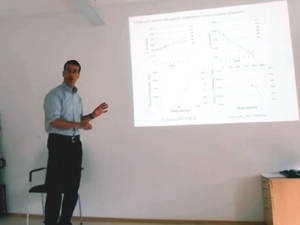
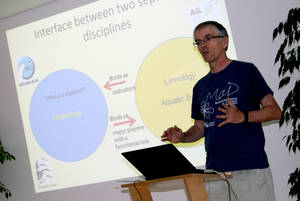
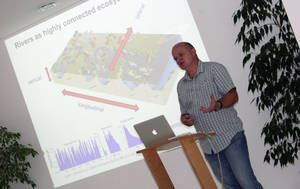
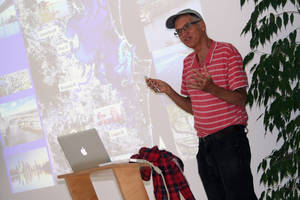
Tom Pinceel, KU Leuven, Belgium:
Estimating the Impact of Climate Change on Temporary Aquatic Ecosystems
18th October 2017
Jonas Schoelynck, University of Antwerp, ECOBE:
The importance of silicon in river ecology: downstream transformations of a forgotten element.
20th September 2017
Brian Fry, Australian Rivers Institute, Griffith University, Brisbane:
Tracers show large-scale connectivity across landscapes: A case study of watershed development and sediment erosion impacting downstream coastal fisheries at Brisbane, Australia
21st June 2017
Stuart Bunn, Australian Rivers Institute, Griffith University, Brisbane:
River-floodplain connectivity and food web subsidies in tropical rivers
21st June 2017
Stefanie Moorthi, Institute for Chemistry and Biology of the Marine Environment, Oldenburg, Germany:
Implications of ecological stoichiometry in plankon food webs - considering interactive effects of nutrient availability and temperature and the functional role of mixotrophs
12th June 2017
Andy Green, Doñana Biological Station, Spain
The role of birds in freshwater ecosystems
31st May 2017
Markus Lindholm, NIVA, Norway
Climate driven range retraction of the Arctic fairy shrimp Branchinecta paludosa
19th May 2017
Norbert Kamjunke, Helmholtz Center for Environmental Research (UFZ), Germany:
Release and degradation of dissolved organic matter in streams
4th May 2017
Demetris Koutsoyiannis, National Technical University of Athens, Greece:
Saving the world from climate threats vs. dispelling climate myths and fears
20th April 2017
Seminare 2016
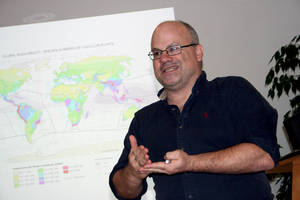
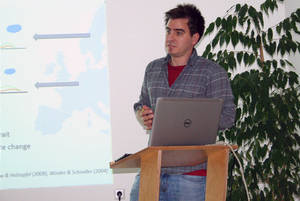
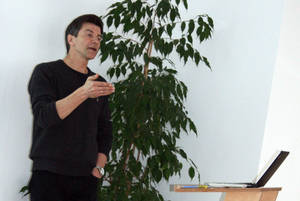
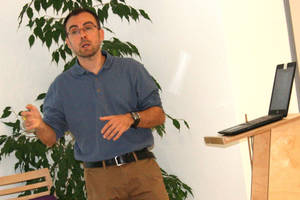
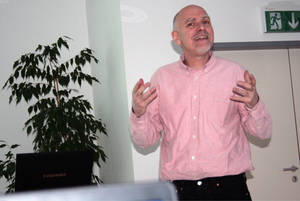
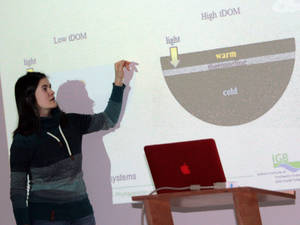
Jonathan Chase
German Centre for Integrative Biodiversity Research, Leipzig:
"Quantifying biodiversity change in the Anthropocene: We know less than we think"
2nd November 2016
Till Czypionka, KU Leuven, Belgium:
Exploring the genetic underpinnings of diapause termination timing in Daphnia magna – an approach combining QTL mapping and candidate gene association studies in natural populations
4th October 2016
Pavel Kratina, Queen Mary University of London, UK:
Indirect effects of climate warming in freshwater ecosystems
1st June 2016
Lynn Chiu, University of Bordeaux/CNRS:
Are individuals ecosystems? Are ecosystems individuals?
24th May 2016
Mira Grönroos, University of Helsinki, Finland:
Metacommunity structuring in stream systems
10th May 2016
Julio C. López-Doval, University of Sao Paolo, Brazil:
Ecological risks of pharmaceuticals in freshwater ecosystems from a Tropical and Mediterranean point of view
27th April 2016
Mia Bengtsson, University of Greifswald & WCL:
The role of regional, local environmental and biotic factors for community composition and diversity of bacteria and microbial eukaryotes in lakes.
12th April 2016
Luc Brendonck, KU Leuven, Belgium:
The impact of dormant egg bank dynamics on population and community processes along the pond permanence gradient
10th March 2016
Dag O. Hessen, University of Oslo, Norway:
Boreal and alpine lakes in transition: long-term changes in temperature, chemistry and browning
4th March 2016
Steven Loiselle, University of Siena, Italy:
Community limnology: a global tour of citizen contributions to freshwater research
17th February 2016
Jens Nejstgaard, IGB Berlin:
How to assess zooplankton feeding in situ: a 100 year problem and potential solution using quantitative molecular analysis of prey in zooplankton guts.
18th January 2016
Stella Berger, IGB Berlin:
Multiple stressors in pelagic ecosystems: Effects of eutrophication, browning, and deep mixing simulated in large mesocosms
18th January 2016
Susanne Stephan, IGB Berlin:
Phytoplankton in a world of changing light - Effects of skyglow, brownification and eutrophication on freshwater algae
19th January 2016
Seminare 2015
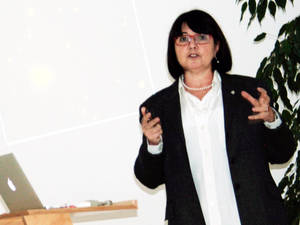
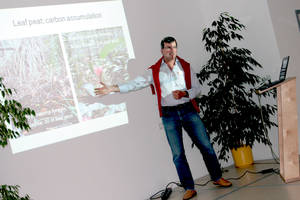
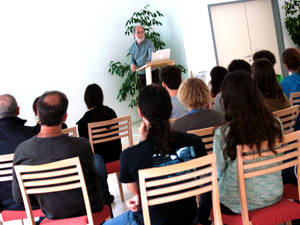
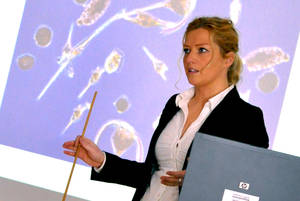
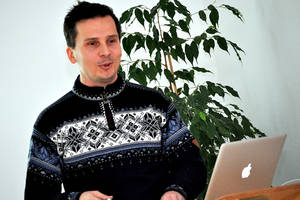
Daniel Gräber, Aarhus University:
Sources and functions of stream dissolved organic matter
December 16th 2015
Nele Schuwirth, EAWAG, Switzerland:
Multi-criteria decision support for environmental management
November 25th 2015
Kevin Lafferty, California University:
Parasites and food webs
October 19th 2015
Michael Reid. University of New England, Australia:
Too many jumbucks* in the billabong**? Evidence of early post-European settlement impacts on billabongs of the Murray-Darling Basin
*sheep; **floodplain lake
October 20th 2015
Cristiana Callieri, ISE Pallanza, Italy:
Micro-players for Macro-roles: two examples from deep lakes
October 13th 2015
Karl Matthias Wantzen, UNESCO Chair for River Culture, University of Tours, France:
Organic matter processing in riparian zones and floodplains of tropical riverscapes
July 1st 2015
Yves Prairie, Université du Québec à Montréal:
Ecosystem processes and biogenic carbon gases: a two way street
June 15th 2015
Christian Griebler, IGOE Neuherberg:
Dynamics of microbial communities and functions in natural and stressed groundwater ecosystems – key drivers and major limitations
May 5th 2015
Bas Ibelings, UNIGE Switzerland:
On deep lakes, environmental change, plankton biodiversity and disease
April 7th 2015
Mateusz Grygoruk, Warsaw University of Life Sciences - SGGW:
Semi-nature vs. new wilderness: perspectives of aquatic and wetland ecosystems management in evolving environments
March 25th 2015
Blake Matthews, Eawag Switzerland:
Experimental evidence for Eco-evolutionary dynamics in aquatic ecosystems
March 3rd 2015
Maria Stockenreiter, LMU München:
Community assembly and diversity in phytoplankton communities
February 3rd 2015
Marcin Wojewodzic, University of Birmingham, School of Biosciences:
Transgenerational effects in clones - what does the environmental epigenomic offer?
January 22nd 2015
Seminare 2014
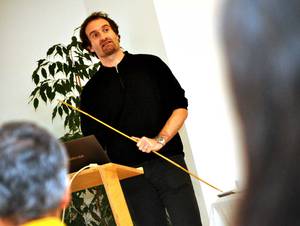
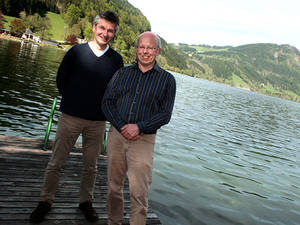
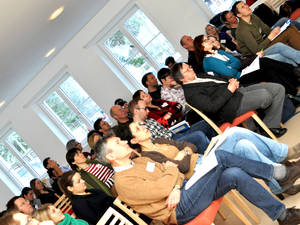
Adam Petrusek, Charles University, Prague, Czechia:
Diversity and impact of invasive crayfish and crayfish plague: from Czechia to continental scale
December 2nd 2014
Ferenc Jordán, Balaton Limnological Institute, Tihany, Hungary:
Key players in food web dynamics
November 4th 2014
Florian Altermatt, University of Zürich & EAWAG, Switzerland:
Diversity patterns and dispersal processes in riverine metacommunities
October 7th 2014
Elena Litchman, Kellogg Biological Station, USA:
Trait-based approaches to phytoplankton ecology and evolution
September 24th 2014
Ulrich Sommer (GEOMAR, Kiel, Germany) & Maria Moustaka-Gouni (Aristotle University, Thessaloniki, Greece): Almost 30 years after: some new elaboration on the PEG-model of plankton seasonal
July 30th 2014
Jaroslav Vrba, University of South Bohemia, Czech Republic: Few, small, but exciting - lessons learnt from long-term limnological research of Bohemian Forest lakes
July 1st 2014
Andrew Tyler, University of Stirling, UK: Global observatory of lake responses to environmental change (GloboLakes)
June 10th 2014
Chris Parrish, Ocean Sciences Center, Memorial University of Newfoundland, Canada: Nutritional and biomarker lipids in marine food webs
May 6th 2014
Katharina Besemer, University of Vienna: Spatial patterns of microbial biofilm biodiversity in streams
April 1st 2014
Steven Declerck, Netherlands Institute of Ecology: Metacommunity theory as a framework for the study of spatial community patterns of aquatic organisms: on the importance of landscape features and organism traits
March 5th 2014
Erik Jeppesen, Aarhus University, Denmark: Climate change effects on trophic dynamics in freshwaters - from the Arctic to the tropics
February 4th 2014
Griselda Chaparro: Influence of water level and macrophytes in the spatial and temporal patterns of zooplankton in a floodplain lake
January 8th 2014
Seminare 2013
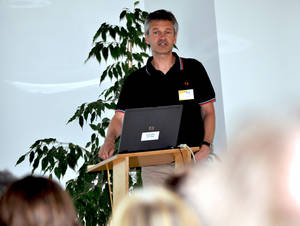
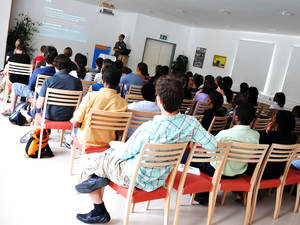
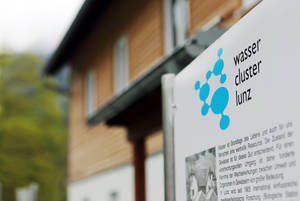
Tz-Ching Yeh, WCL: Organic matter dynamics from an Indian estuary to Taiwanese rivers
December 4th 2013
Christoph Plum, University Oldenburg, Germany: Diversity meets stoichiometry - The role of biodiversity for stoichiometric interactions in planctonic food webs
August 27th 2013
Maren Striebel, University Oldenburg, Germany: Mesocosms 2013: what we did this summer
August 27th 2013
Robert Fischer, ICBM Wilhelmshaven, Universität Oldenburg, Germany: Relative importance of mixotrophy alond gradients of light and loss-rates
July 18th 2013
Jan-Erik Thrane, Department of Biosciences, University of Oslo, Norway: Fate of light in lakes: negative impact of dissolved aroganic carbon on primary productivity
July 18th 2013
Tom Andersen, University of Oslo, Norway: Robot limnology
June 27th 2013
Ellen van Donk, Netherlands Institute of Ecology: What is the impact of chemical communication? Examples of planktonic interactions in lakes
June 19th 2013
David Murray, WCL: Adhesion mechanisms in European whitefisch (coregonus lavaretus) eggs: a survival mechanism for high energy spawning grounds?
June 13th 2013
Nina Welti, University of Queensland, Australia: Stories from the swamp: Tales of fire, wonky mounds and groundwater
April 17th 2013
Francesco Pomati, EAWAG Zürich/Kastanienbaum: Real-time quantification of phytoplankton with the CytoBuoy, an in-situ flow cytometer
March 28th 2013
Alexey Ryabov, University Oldenburg, Germany: Phytoplankton – competition and coexistance in vertically structured water columns
March 28th 2013
Csaba Vad, WCL: Seasonal and diet patterns of microcrustacean zooplankton in relation of environmental variables in peatland ponds
March 20th 2013
Zsófia Horváth, WCL: Aquatic communities and metacommunities of the European astatic soda pans
January 14th 2013




